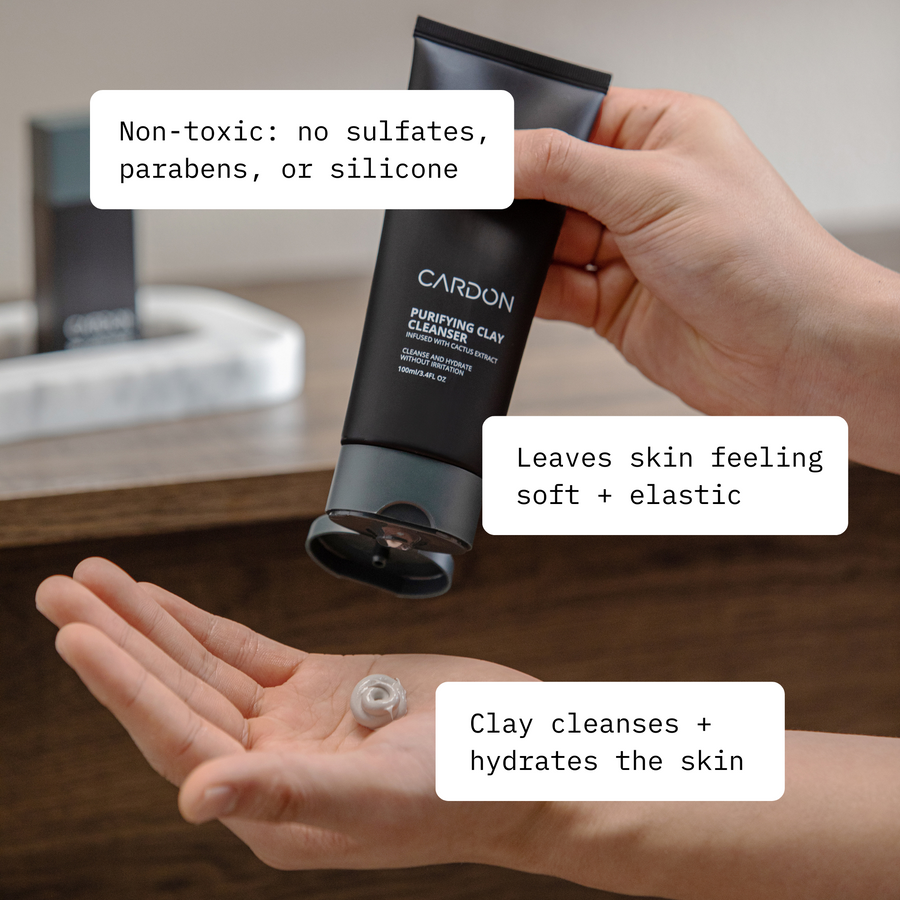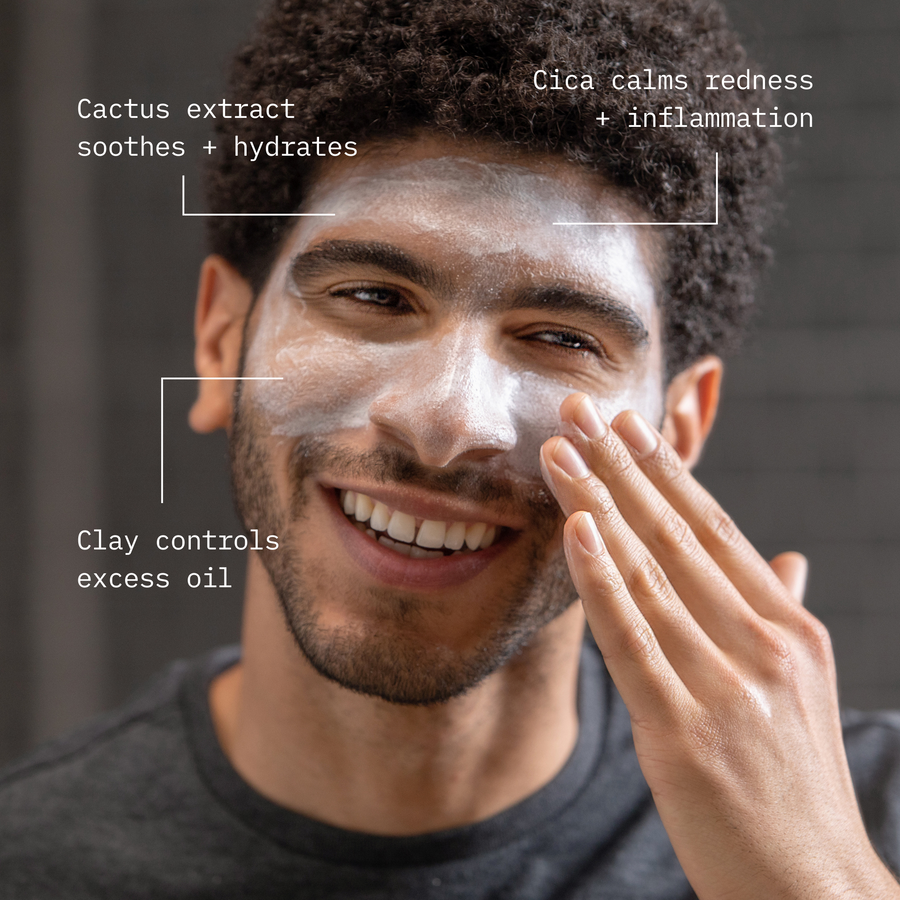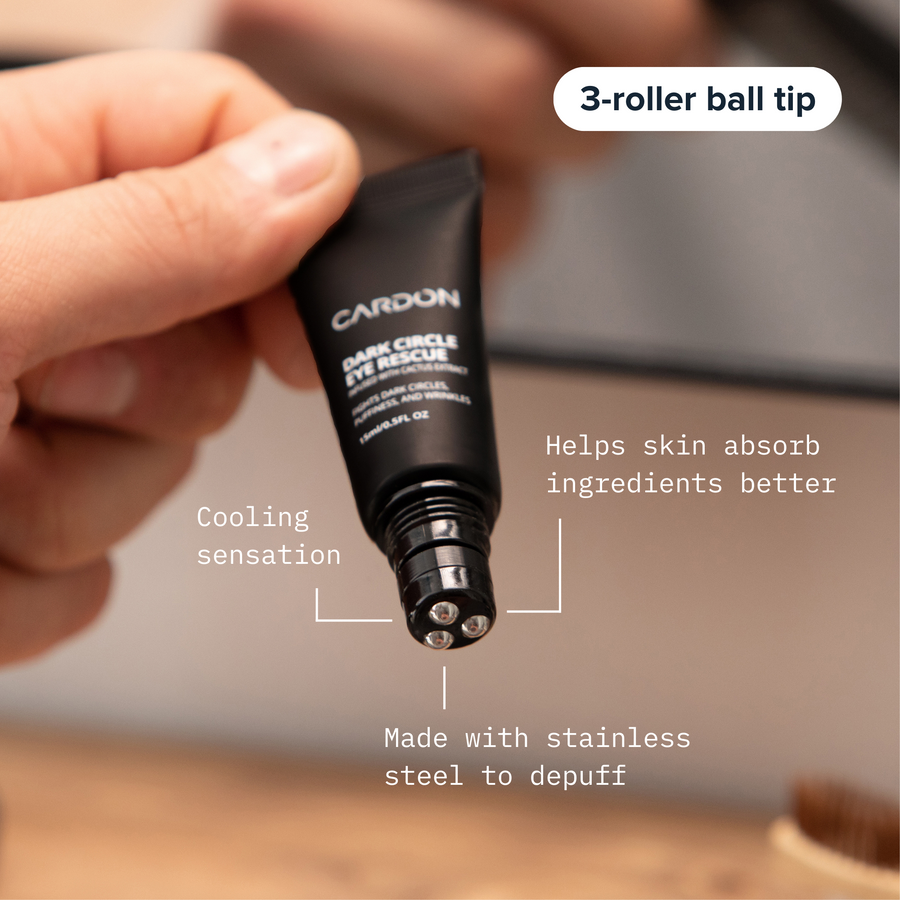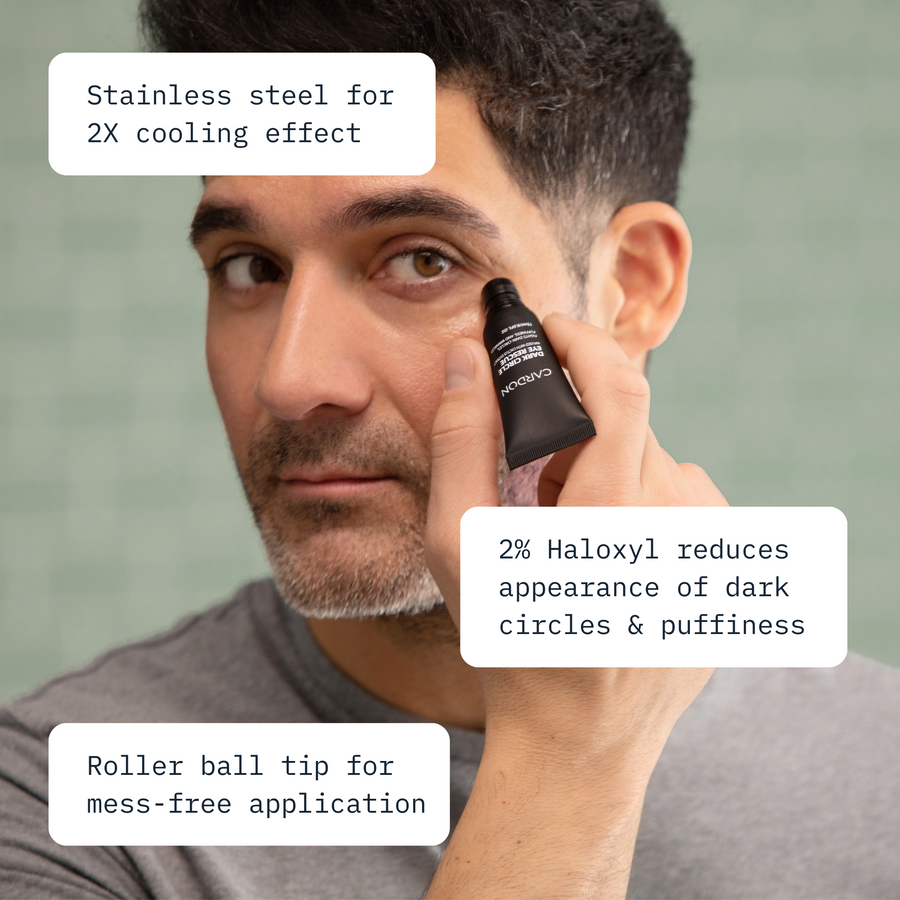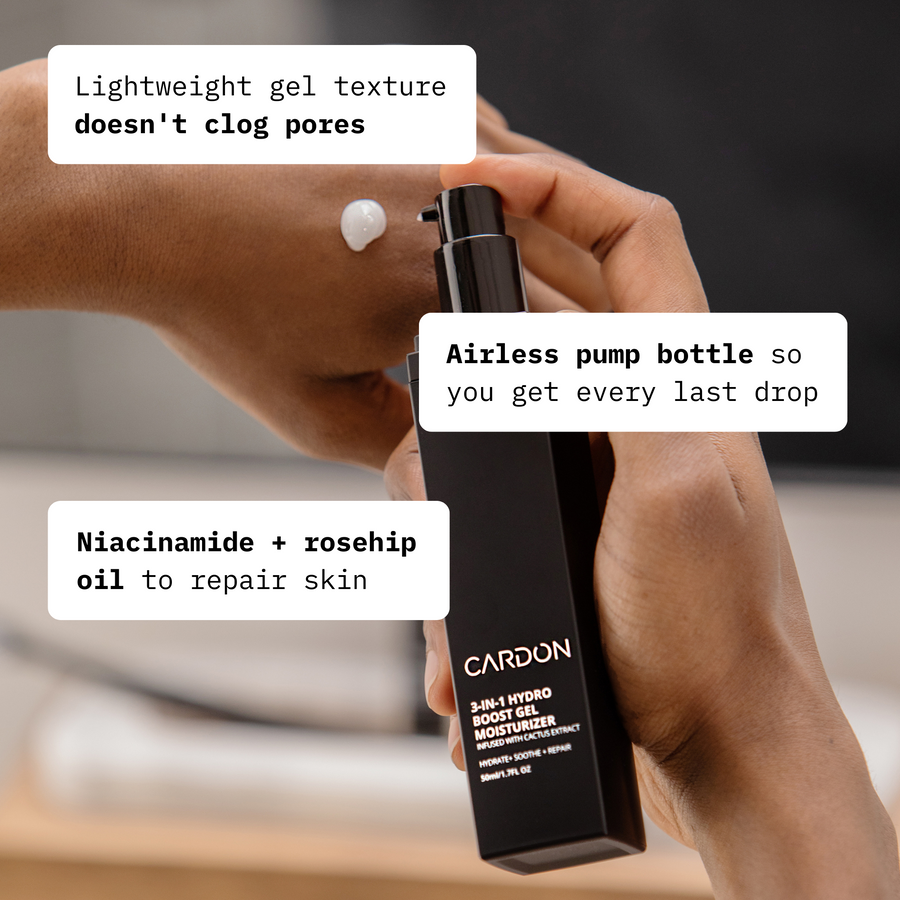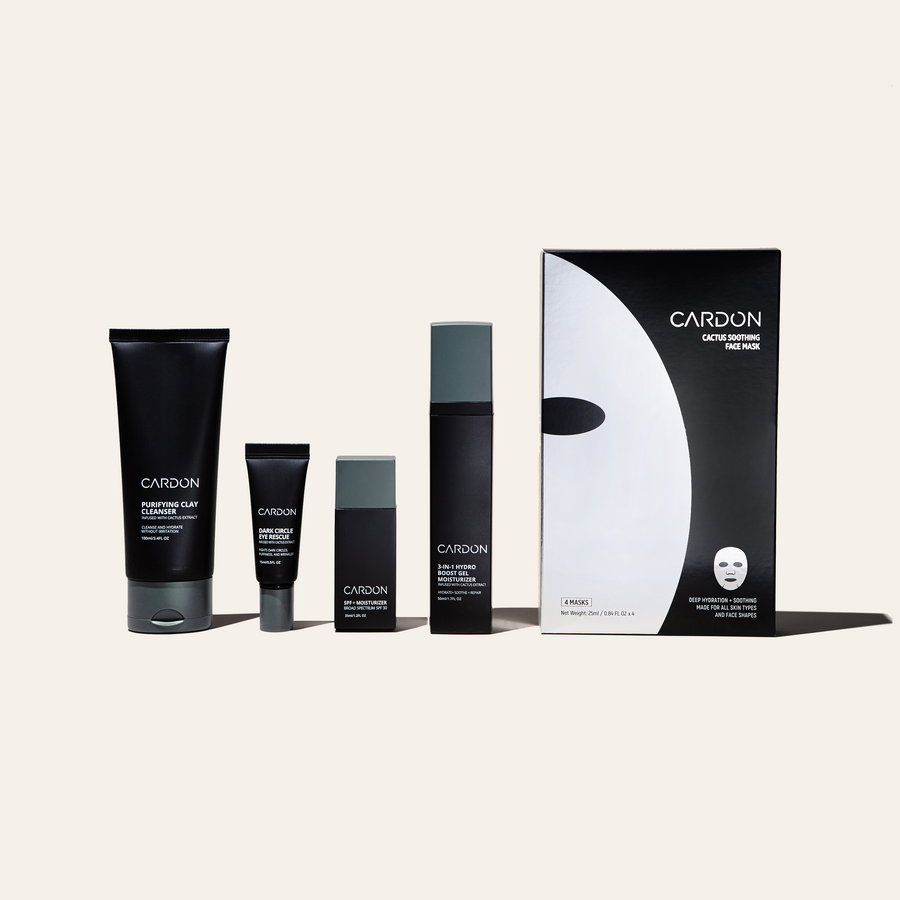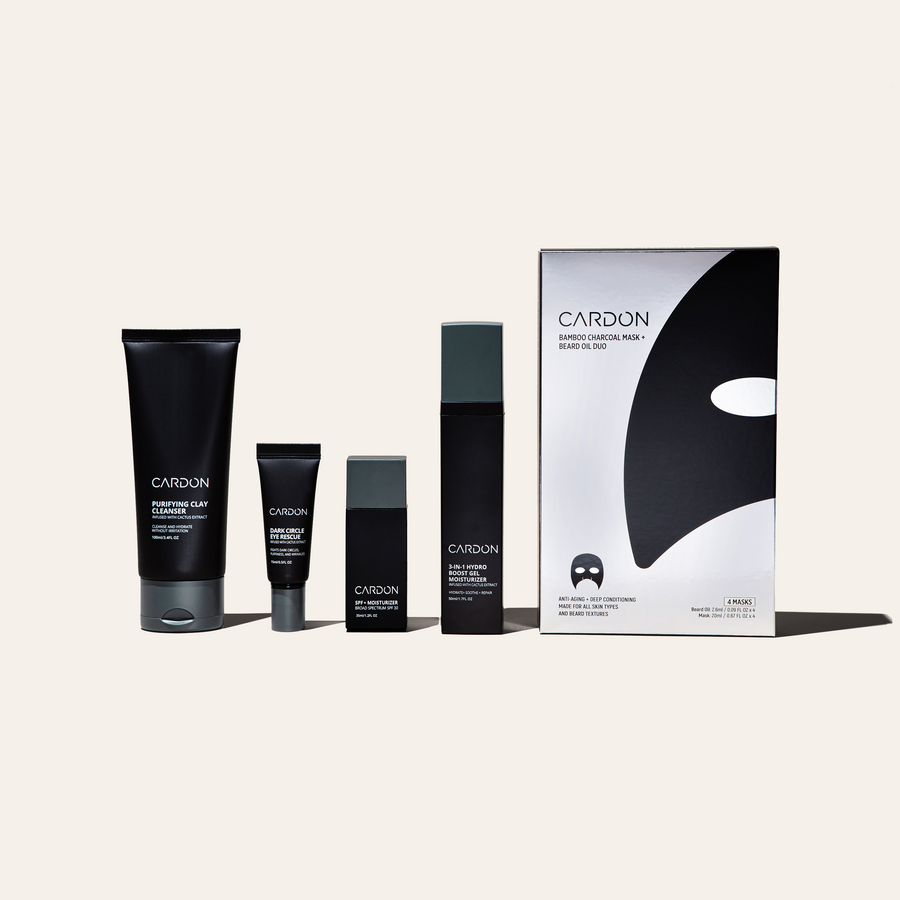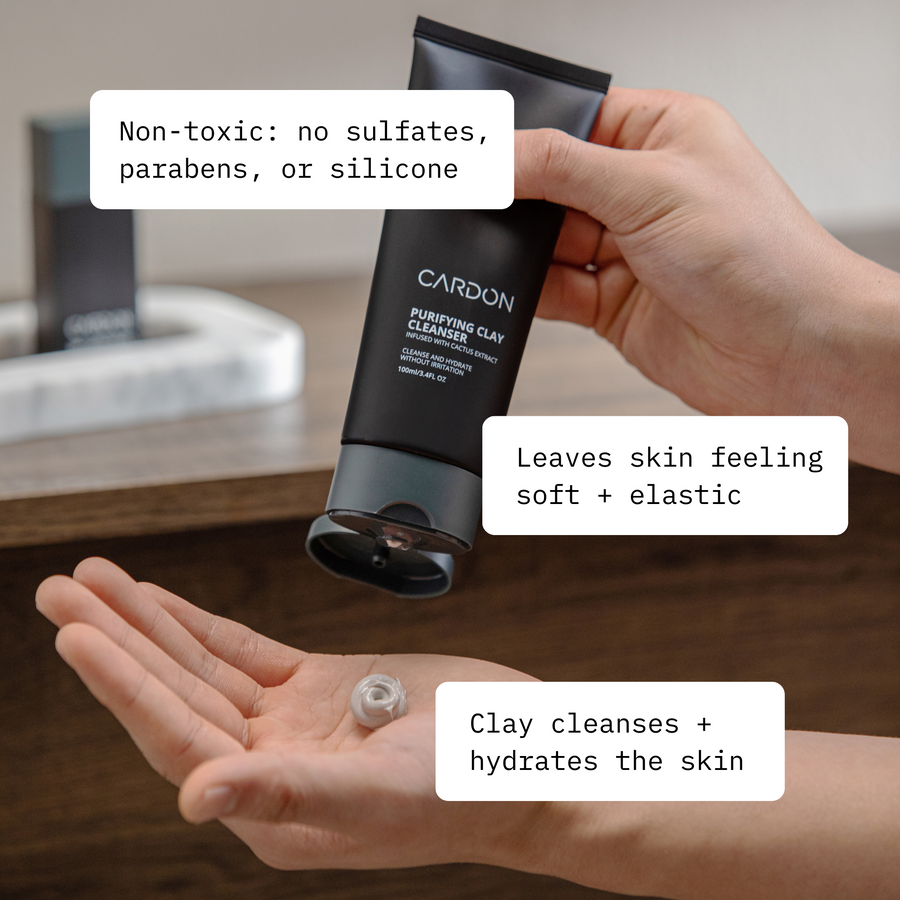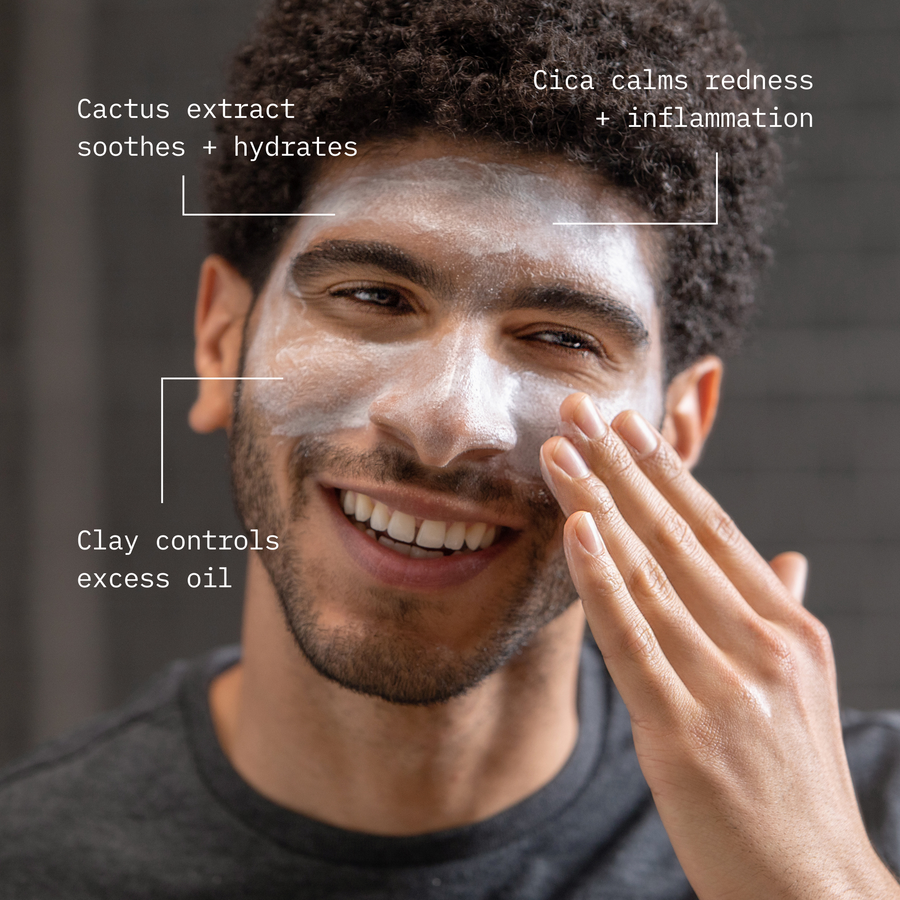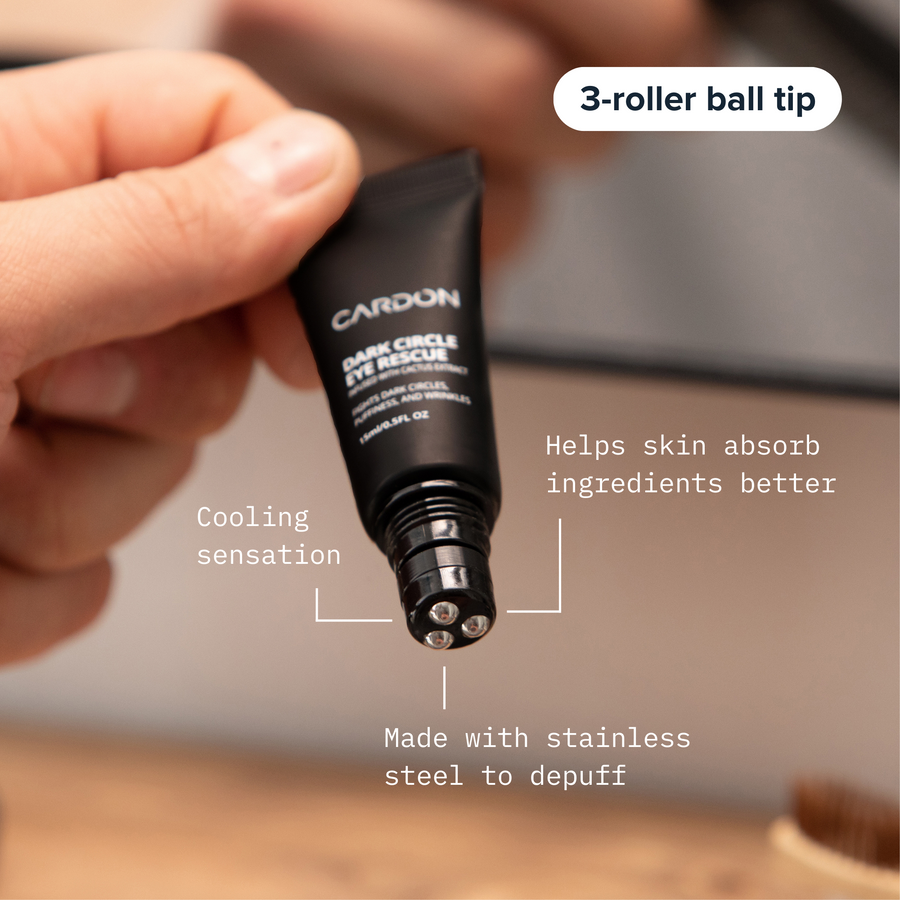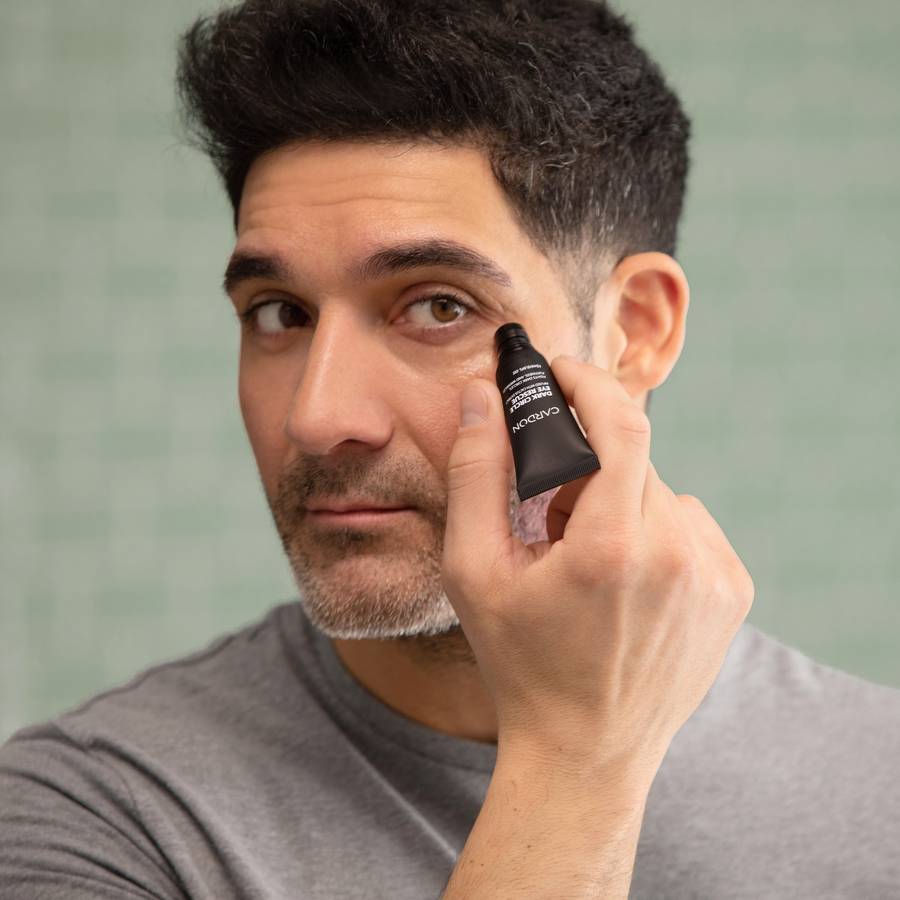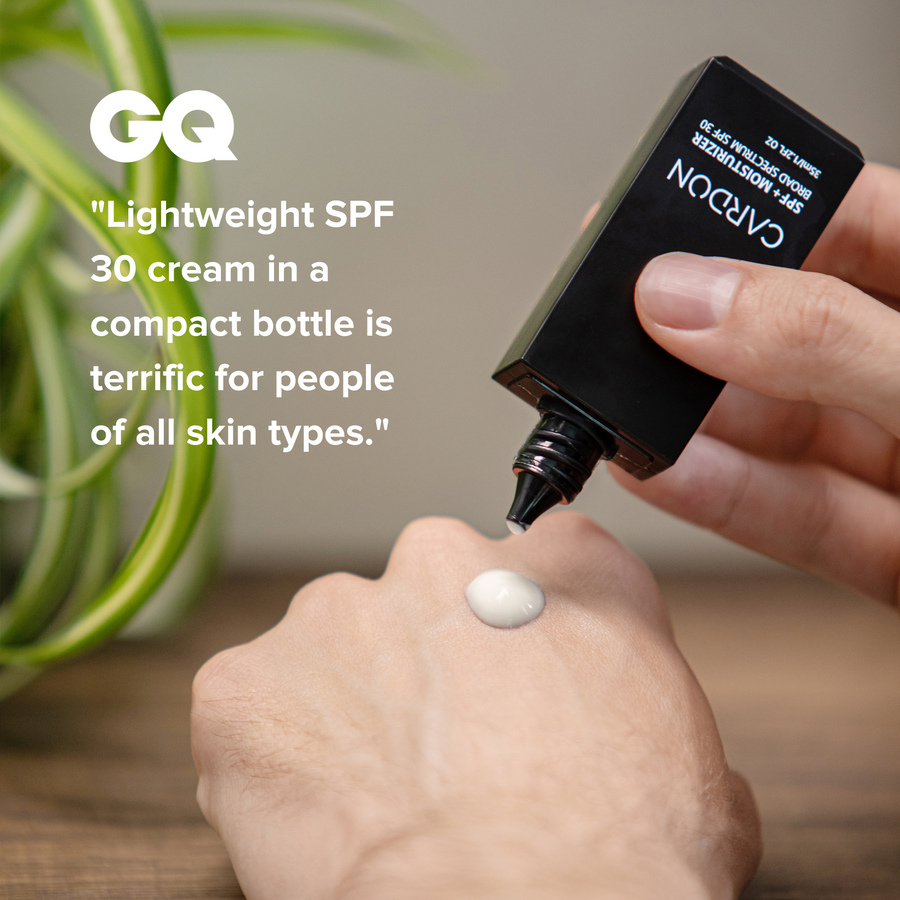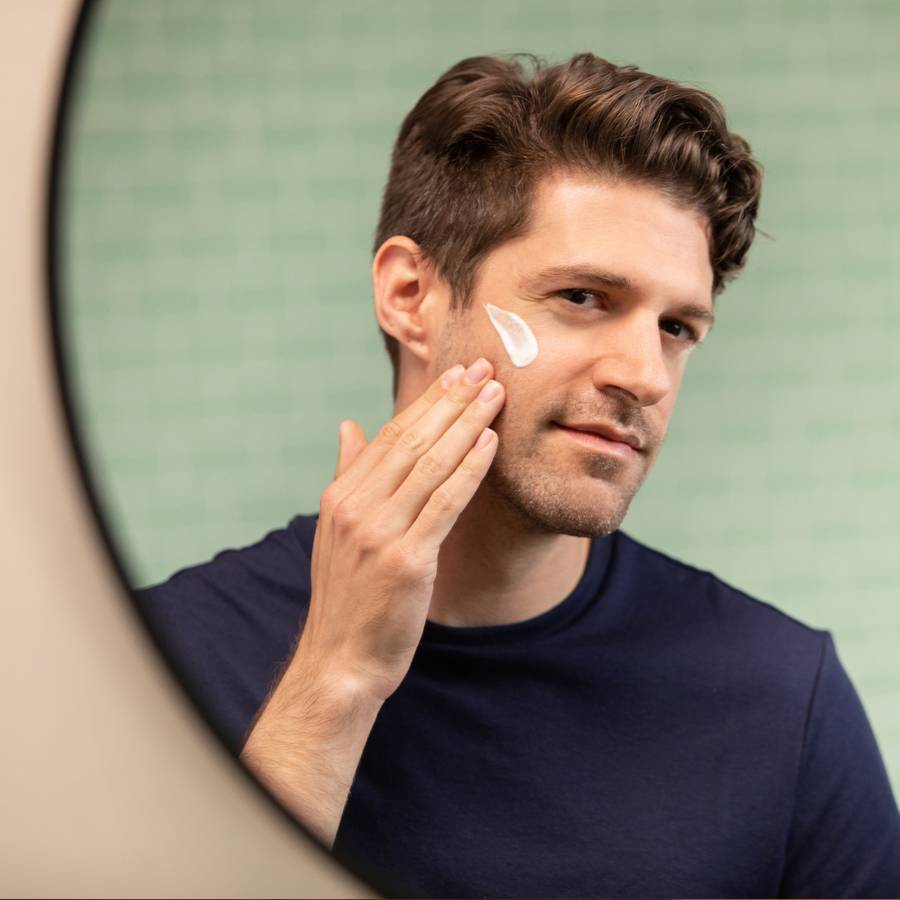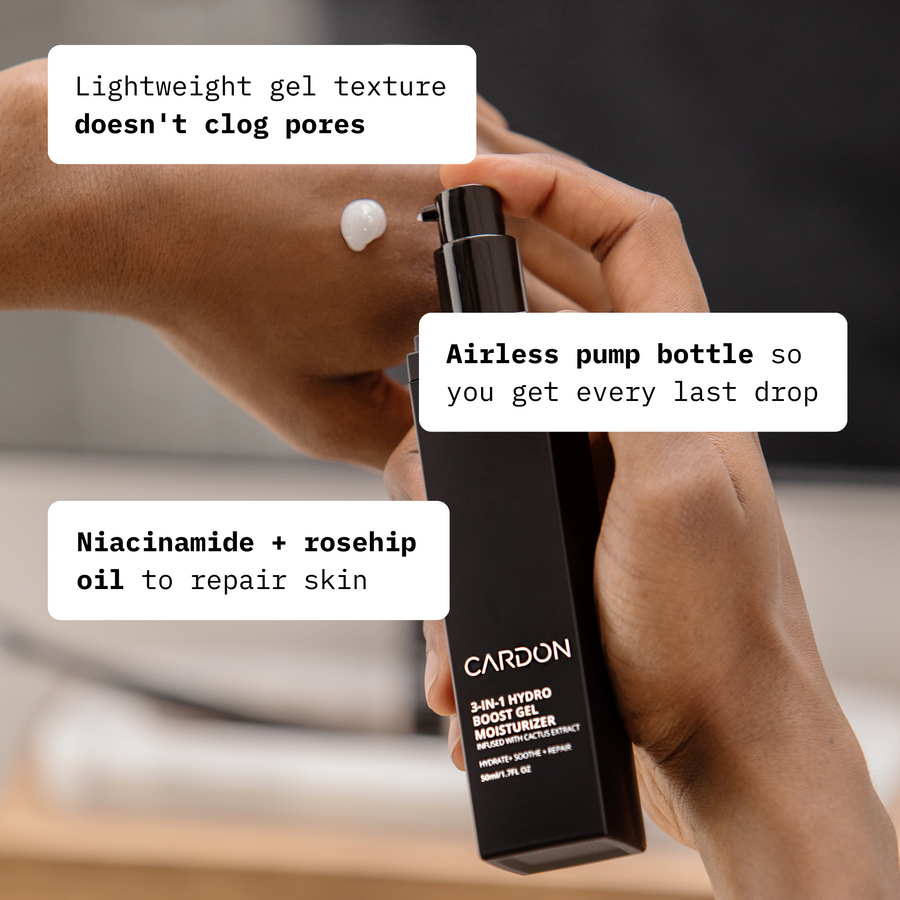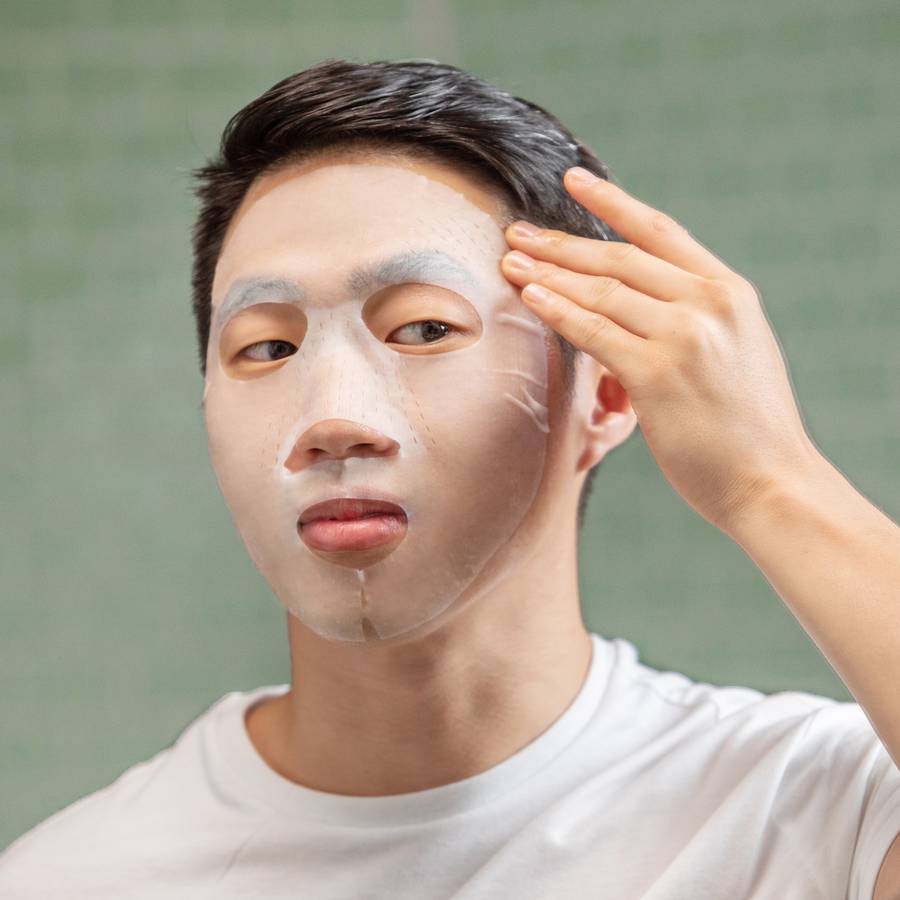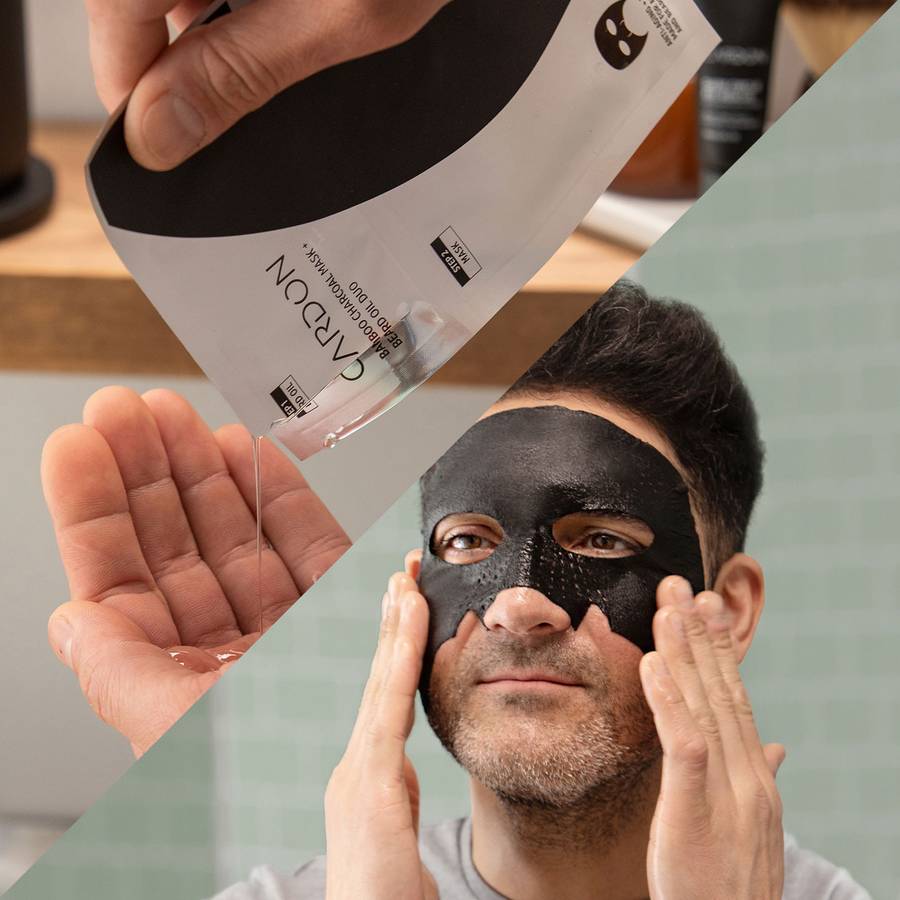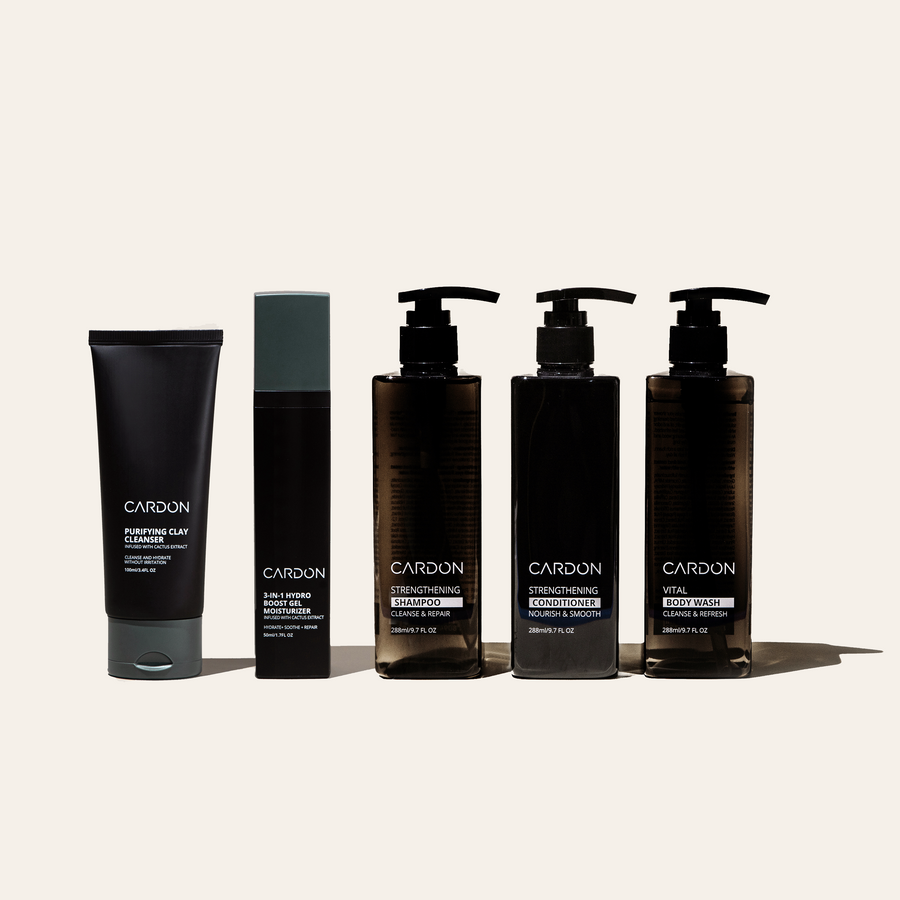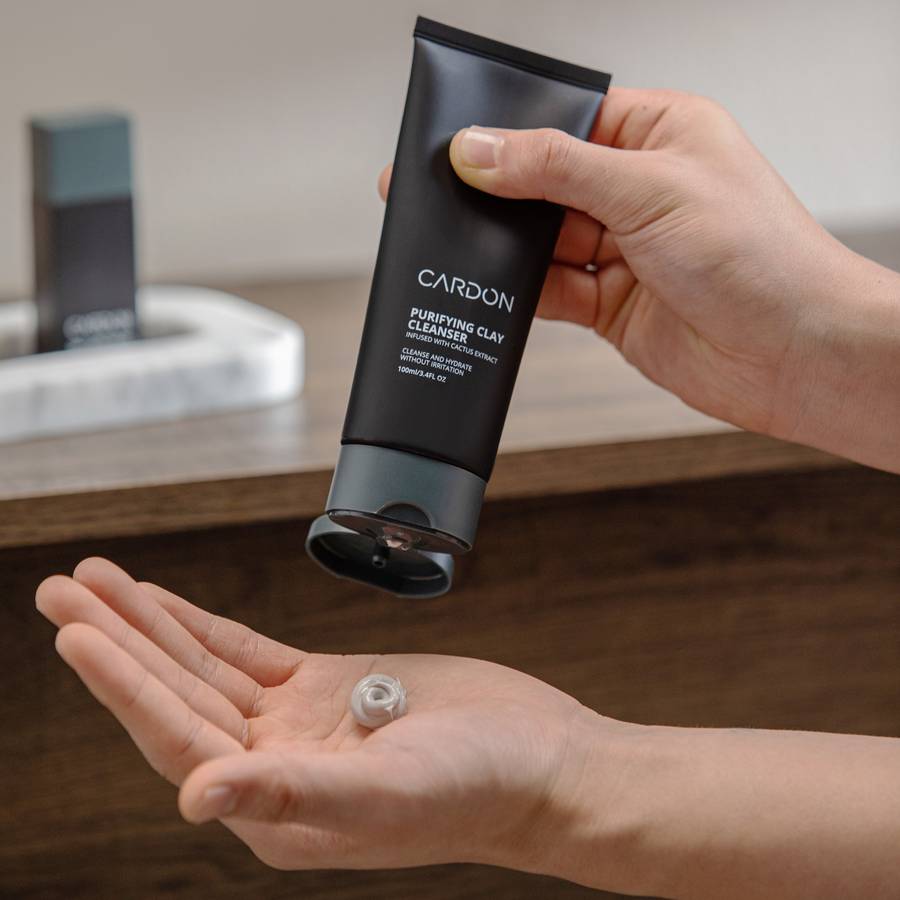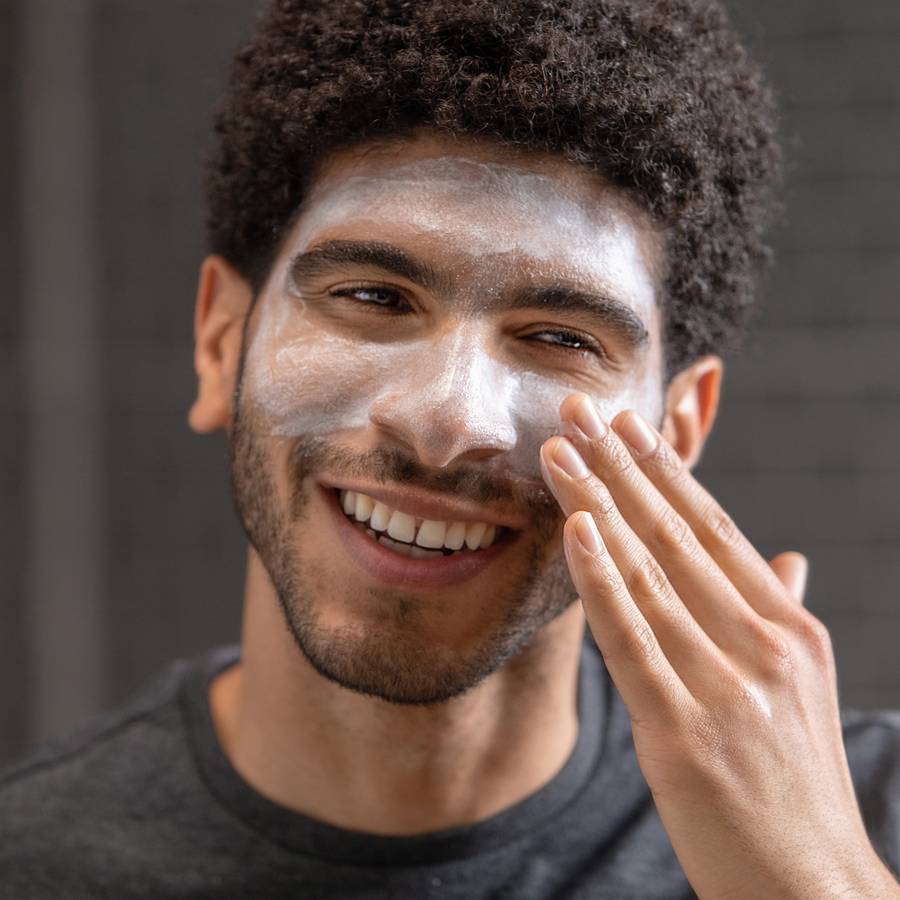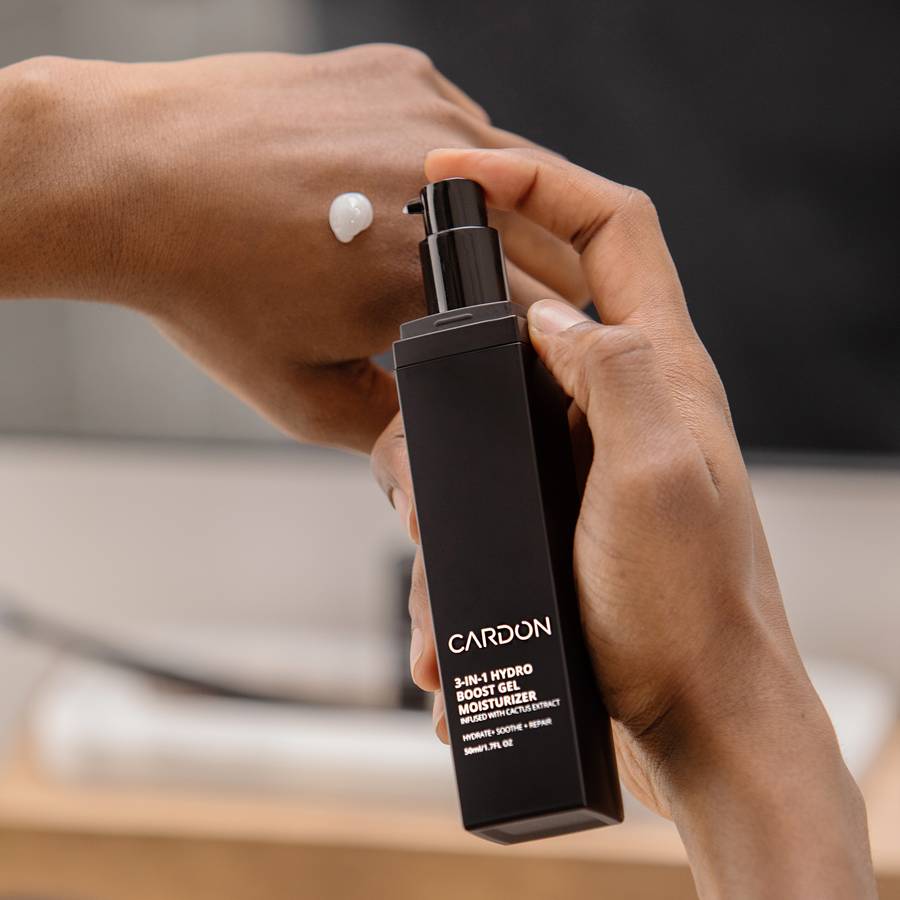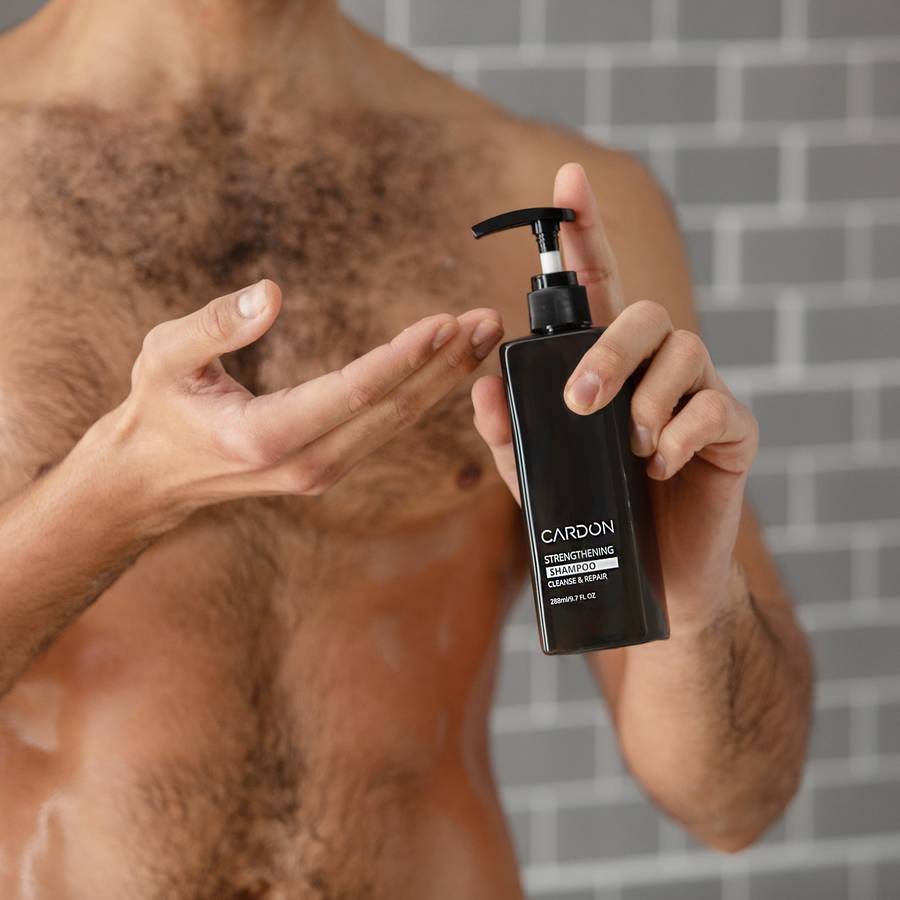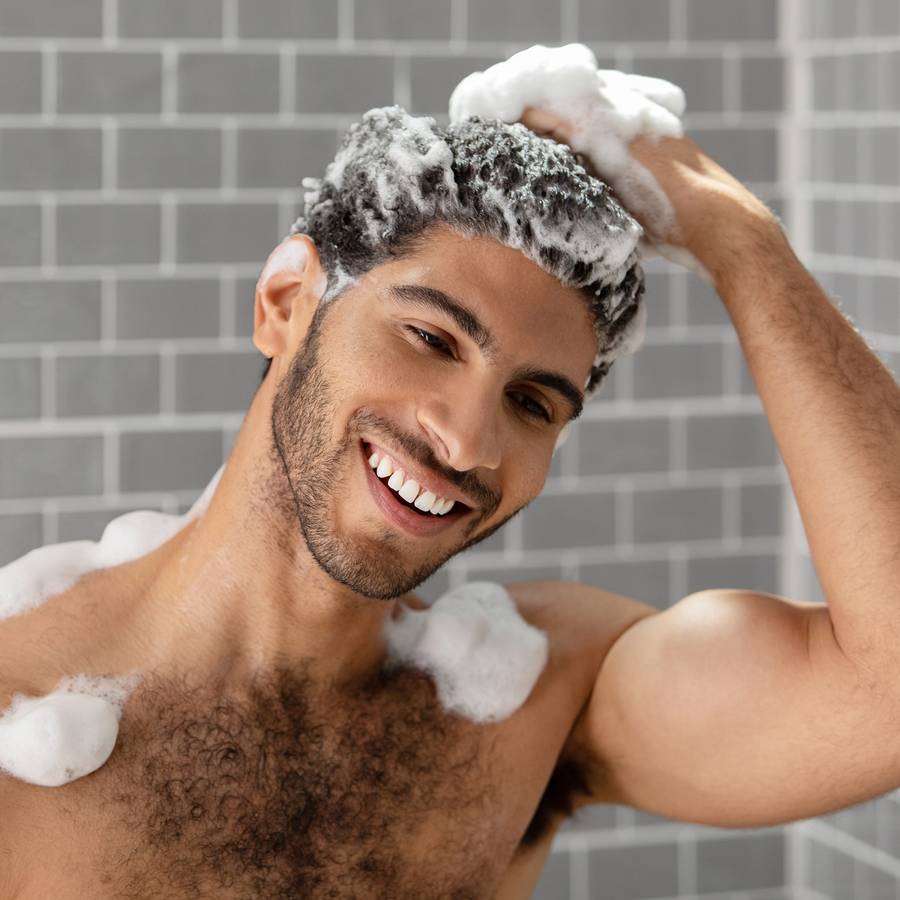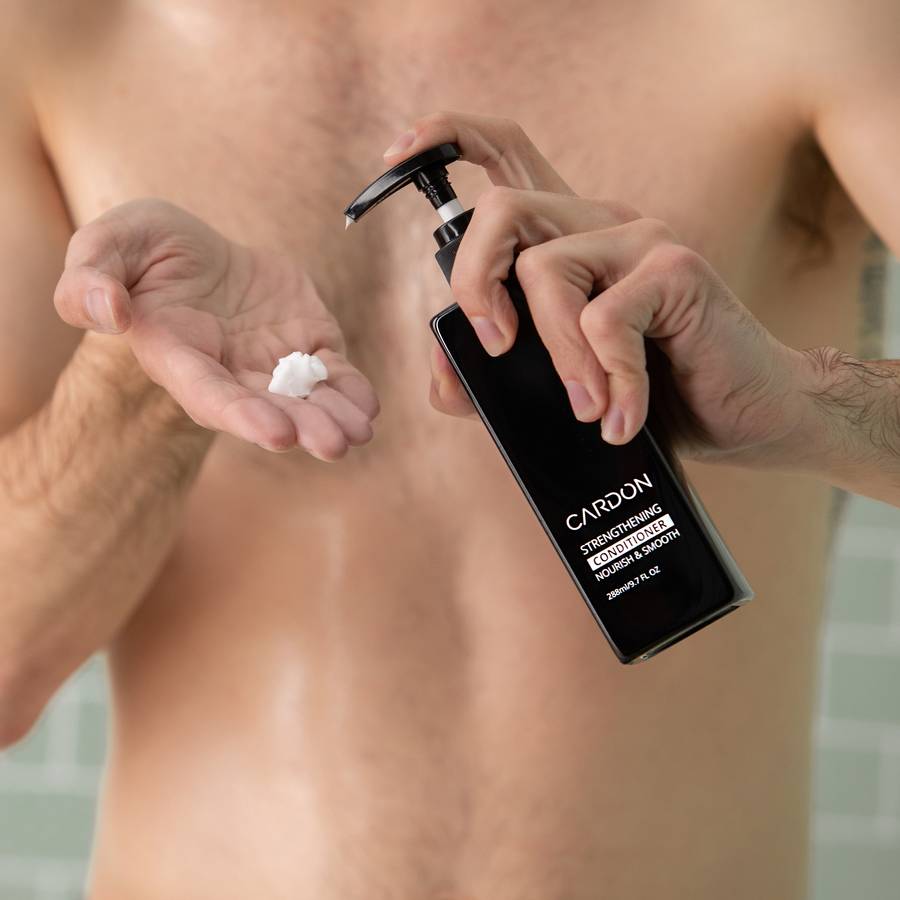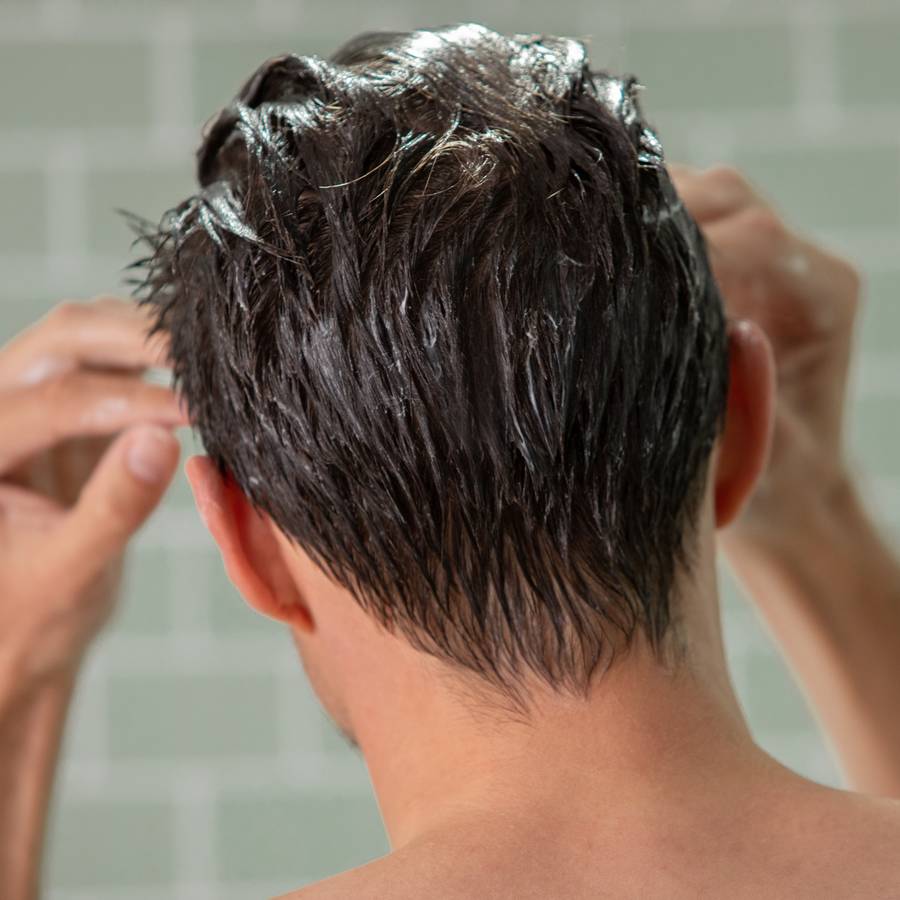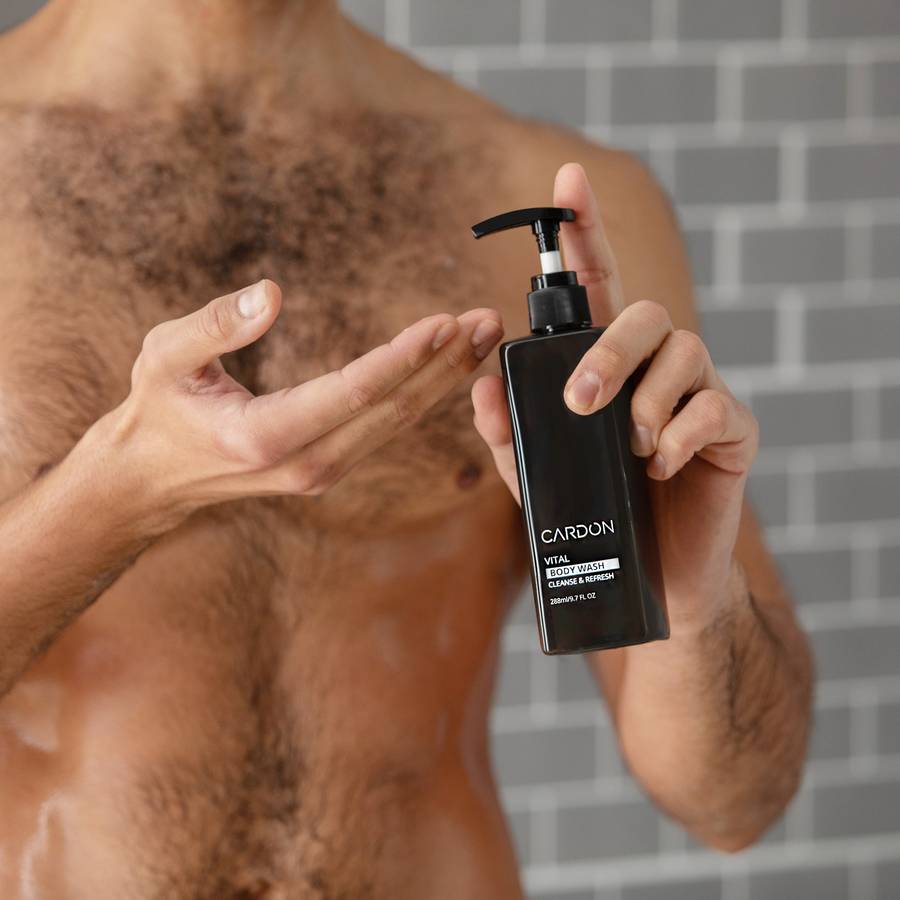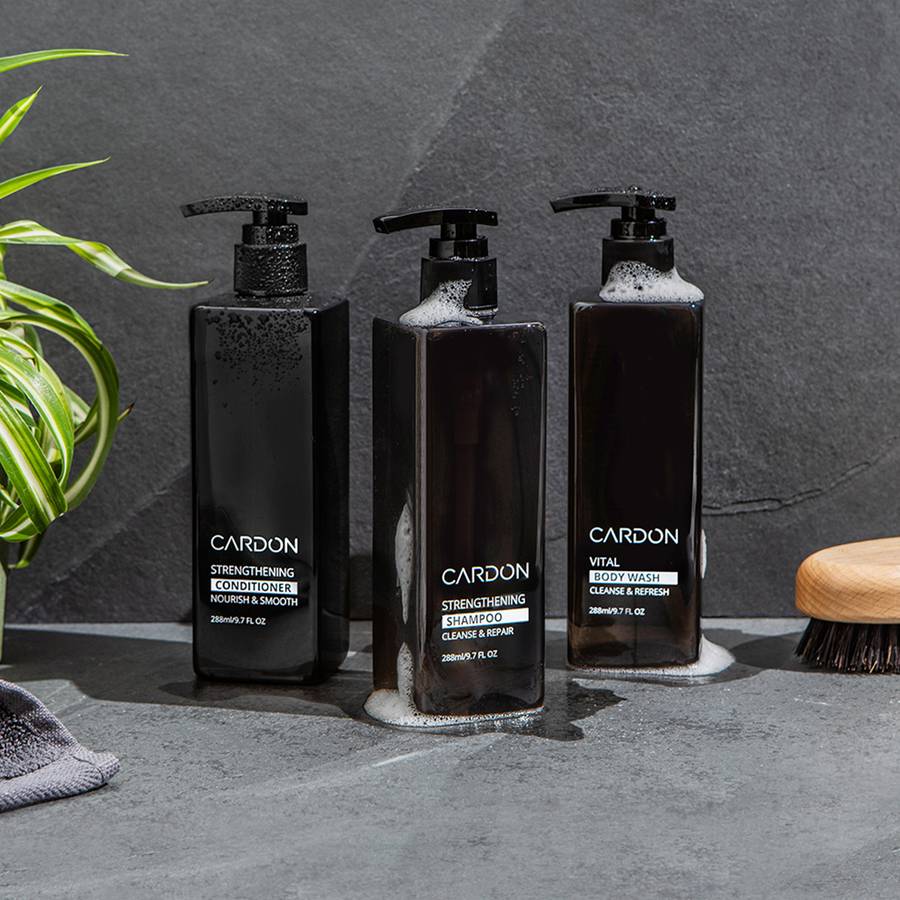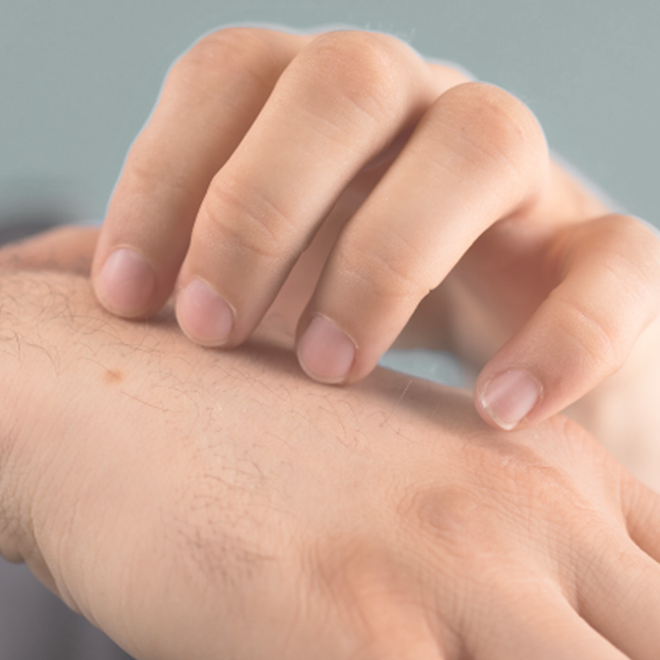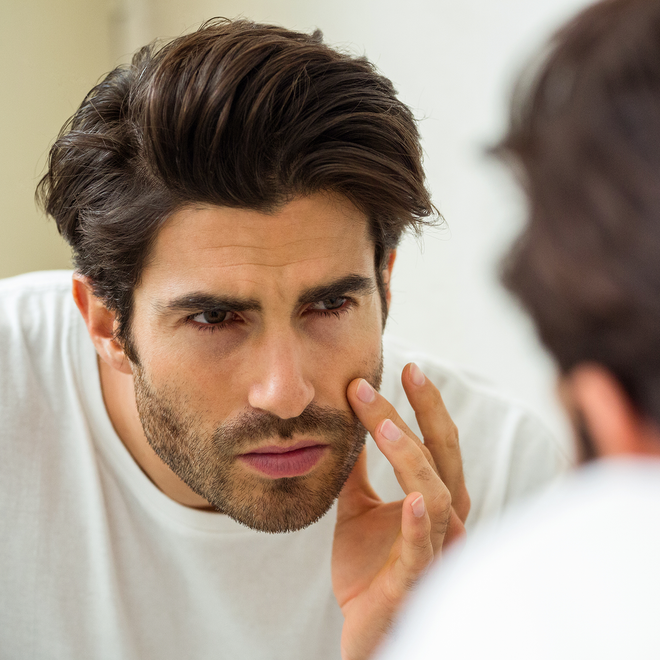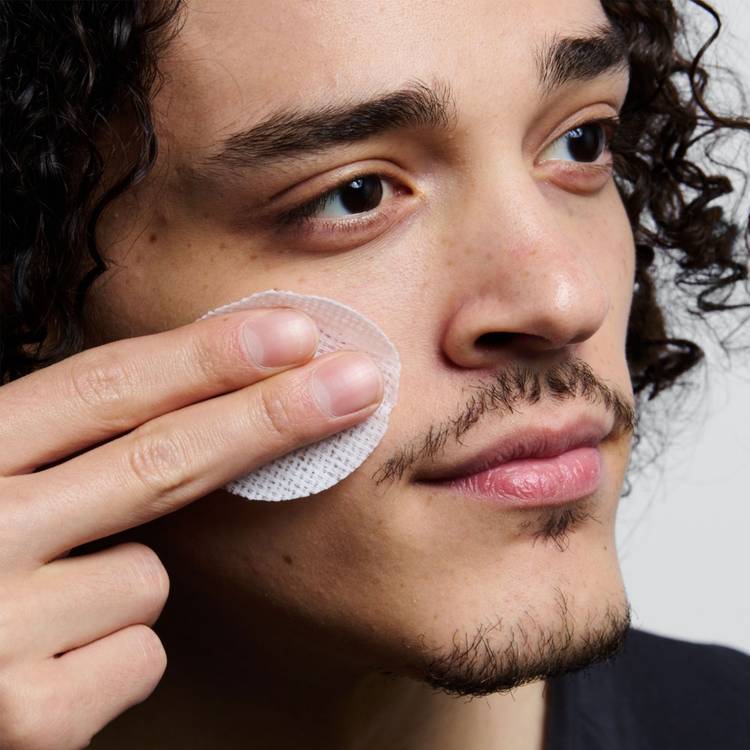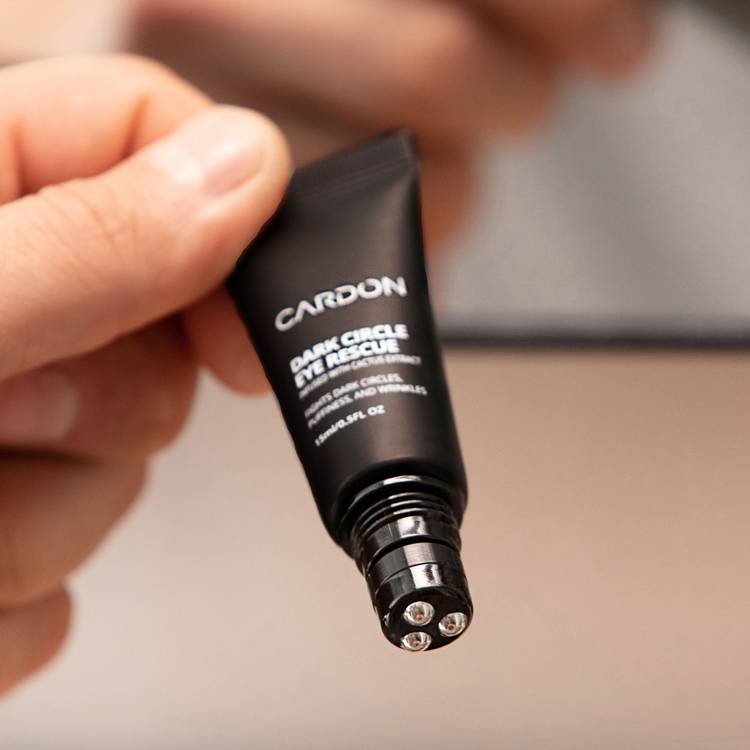What Is Skin’s “Moisture Barrier”?

You’ve probably heard the phrase “skin is your body’s biggest organ!”, which is a true statement. And while our skin acts like a nice sausage casing to keep all our insides tucked away, it also has other functions. For one, skin has the important task of keeping germs, toxins, UV rays, and chemicals out of the body, like a shield from all the various threats that our environment poses. It also helps regulate body temperature through hot and freezing days alike.
The first of those two core functions—skin’s barrier-like defense—is a common point of discussion in skincare, too. Perhaps you are also familiar with the terms “skin’s barrier function” and “the skin’s moisture barrier”. These two terms are not one in the same, but they are related are are both important to understand. Read on to learn more, and to discover how a good skincare regimen can reinforce both of these barrier facets of skincare.
Skin’s Barrier Function, Explained

Cardon Anti-Aging Skincare Set
First things first: It’s imperative to think of skin as armor for the rest of your body, almost like a giant fortress protecting the royal family of organs inside. So, when a skincare product or regimen promises to boost skin’s barrier function, it is referring to this defensiveness against germs and bacteria, toxins and pollution, chemicals, UV rays, and the likes.
With this in mind, you can work backwards to understand the types of ingredients that are important to reinforce this barrier from the outside. Also, given that skin thins as we age, it is important to use products that fortify the skin as a whole.
SPF: Using a daily SPF 30+ product, like a moisturizer with sunscreen, will move the needle most by neutralizing the incremental exposures to UV rays (which add up over time to mutate skin’s DNA and damage barrier functions).
Antioxidants: A skincare regimen should prioritize antioxidant-rich ingredients like cactus extract in order to build up skin’s defense age toxins, UV damage, pollution, and more. Most anti-aging assortments will center antioxidants in their formulas.
Healing properties: It’s important that skin heals itself rapidly, so that any cuts, razor burns, or acne blemishes seal off and rebound quickly, in order to keep germs and bacteria on the outs. One of the best ways to obtain healing properties is through a repair-focused night moisturizer, since sleep is also when your body replenishes itself.
Anti-inflammatories: Soothing and calming ingredients will help reducing any inflammation that temporarily compromises skin’s barrier functions. Look for a soothing moisturizer with ingredients like cactus extract or turmeric to temper any such swelling.
Skin firmers: Look for ceramides (usually in eye creams), as well as collagen- and elastin-boosting products that help reinforce skin’s suppleness, resilience, and density. Niacinamide is a great example of a barrier-strengthening ingredient.
Skin’s Moisture Barrier, Explained

There’s something (intentionally) missing from the list of products above: everything pertaining to actual moisture, despite all the mentions of moisturizers. That’s because skin itself requires moisture in order to stay strong, resilient, supple, and to maintain its barrier functions. So, when we talk about skin’s moisture barrier, it can be a more encompassing term for all of the above barrier-like functions, but usually it’s a reference to the outermost layer of skin (epidermis), and the amount of moisture required to keep the lights on. This layer is also sometimes called the acid mantle or stratum corneum.
In this way, think of skin’s moisture barrier as the thing you feel, in terms of oiliness or dryness—as well as a driving force behind the barrier functions. Still, there are obvious signs that your skin’s moisture barrier is compromised, which include dryness, flaking, inflammation, and irritation.
In order to keep skin’s moisture barrier reinforced, you (obviously) need to prioritize hydrating ingredients. And while literal moisturizers are a key part of any baseline skincare regimen, you should make sure that your entire regimen is helping preserve moisture in the skin—so, a gentle cleanser is another great baseline product, one that nourishes skin while it expunges excess oil, rather than drying skin out. Try to think of your regimen with that totality: Is it adding moisture, and never detracting? You really can’t ever give your skin too much moisture, but it’s very easy to take things the opposite and dehydrating way. Secondly, make sure you’re not doing anything to damage this outermost layer, like over exfoliating the skin or skipping SPF and getting sunburnt.
For keeping hydration levels high, look specifically for ingredients like cactus extract, hyaluronic acid (which can hold up to 1,000 times its own weight in water), as well as fatty acids such as Omega-3s found in a moisturizer with chia seed extract.
Shop the collection
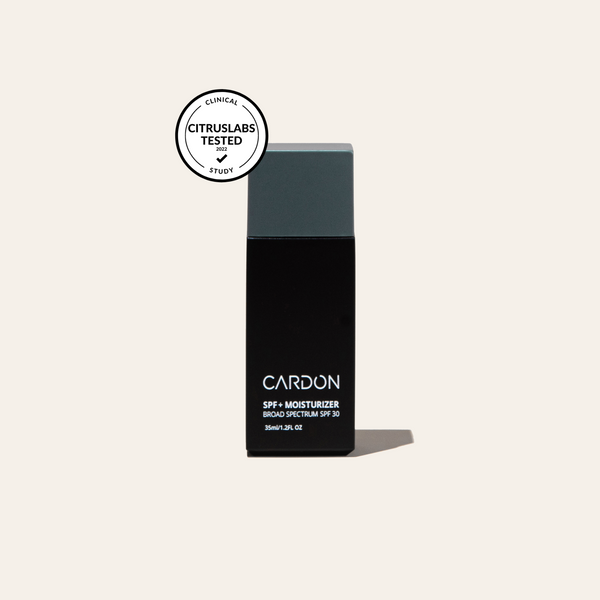
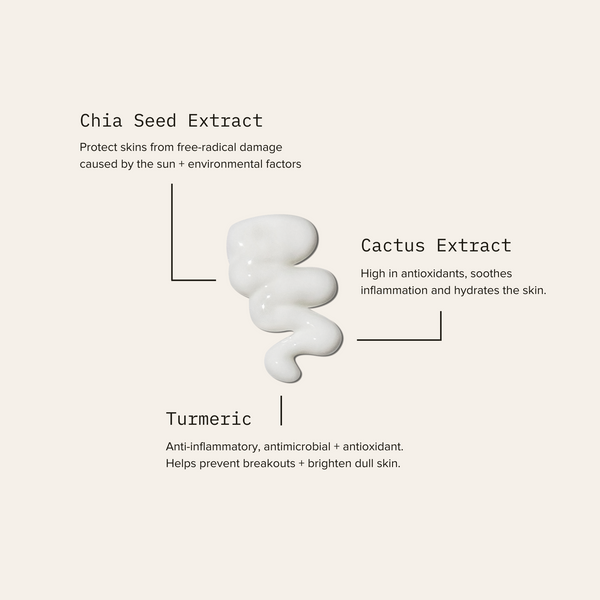
Daily SPF + Moisturizer
good for:
We’re playing favorites—this is the #1 most important step in your skincare routine. Stave off sun damage for healthy, youthful skin for years to come with our Daily SPF + Moisturizer, acclaimed best lightweight moisturizer with SPF by GQ!
Its fast-absorbing, lightweight formula uses Cactus and Chia Seed Extract to provide all-day hydration, plus Broad Spectrum SPF 30 to protect against UVA and UVB rays with ZERO residue or white cast.
“After trying several different brands, I finally found a product I like. It's lightweight, not sticky, and has a very subtle, fresh scent. Will definitely order again. I highly recommend this product.” - Sara T.
Daily SPF + Moisturizer
good for:
We’re playing favorites—this is the #1 most important step in your skincare routine. Stave off sun damage for healthy, youthful skin for years to come with our Daily SPF + Moisturizer, acclaimed best lightweight moisturizer with SPF by GQ!
Its fast-absorbing, lightweight formula uses Cactus and Chia Seed Extract to provide all-day hydration, plus Broad Spectrum SPF 30 to protect against UVA and UVB rays with ZERO residue or white cast.
“After trying several different brands, I finally found a product I like. It's lightweight, not sticky, and has a very subtle, fresh scent. Will definitely order again. I highly recommend this product.” - Sara T.
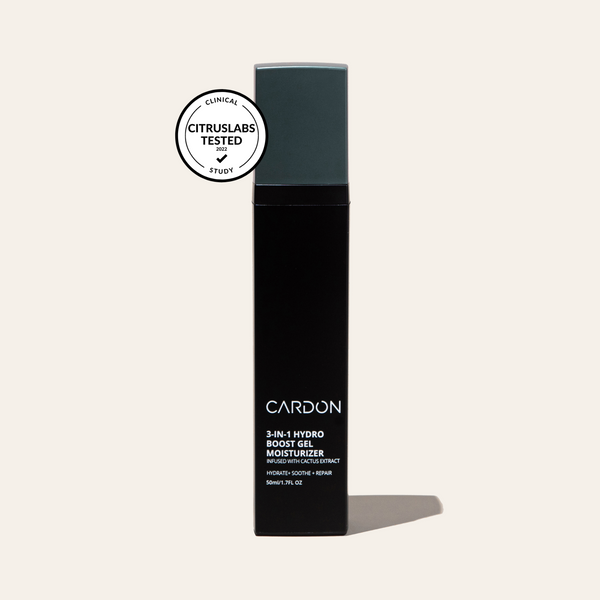
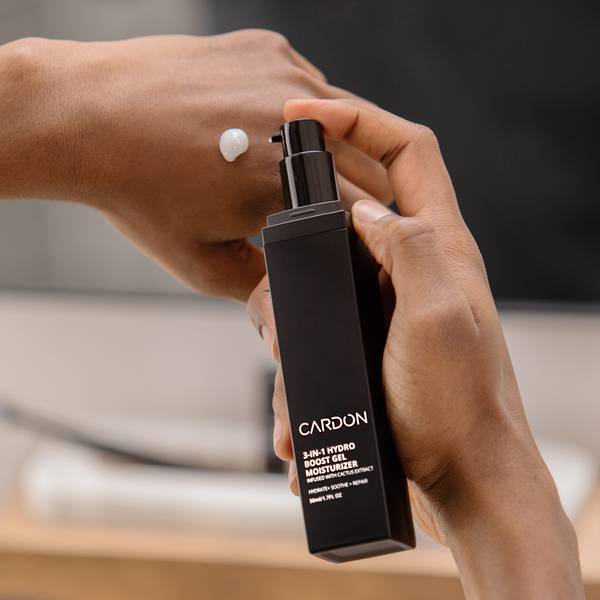
Hydro Boost Gel Moisturizer
good for:
Like a night cap for your skin, our Hydro Boost Gel Moisturizer is the ideal way to finish your evening.
This 3-in-1 gel moisturizer uses Cactus Extract and Rosehip Oil to put in the work while you snooze—hydrating, soothing, and repairing your skin all night long.
“This easily became part of my nightly routine. I've started to notice my face looking healthier and smoother. As a 32 y/o, you start to notice wrinkles creeping in, this helps me keep them at bay.” - Andrew S.
Hydro Boost Gel Moisturizer
good for:
Like a night cap for your skin, our Hydro Boost Gel Moisturizer is the ideal way to finish your evening.
This 3-in-1 gel moisturizer uses Cactus Extract and Rosehip Oil to put in the work while you snooze—hydrating, soothing, and repairing your skin all night long.
“This easily became part of my nightly routine. I've started to notice my face looking healthier and smoother. As a 32 y/o, you start to notice wrinkles creeping in, this helps me keep them at bay.” - Andrew S.
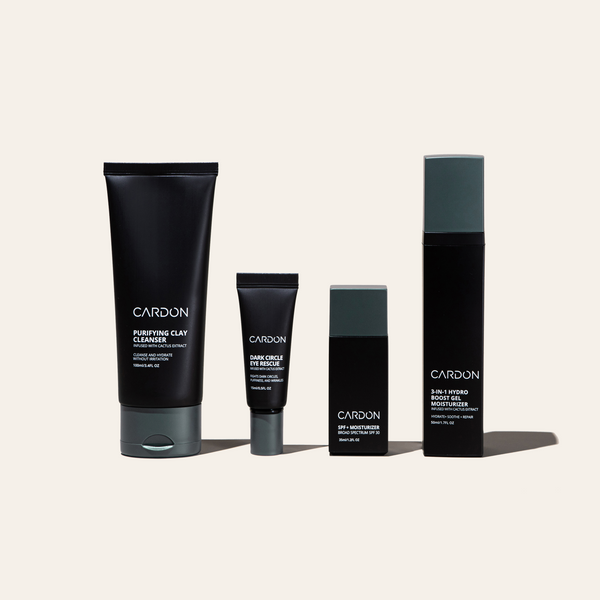
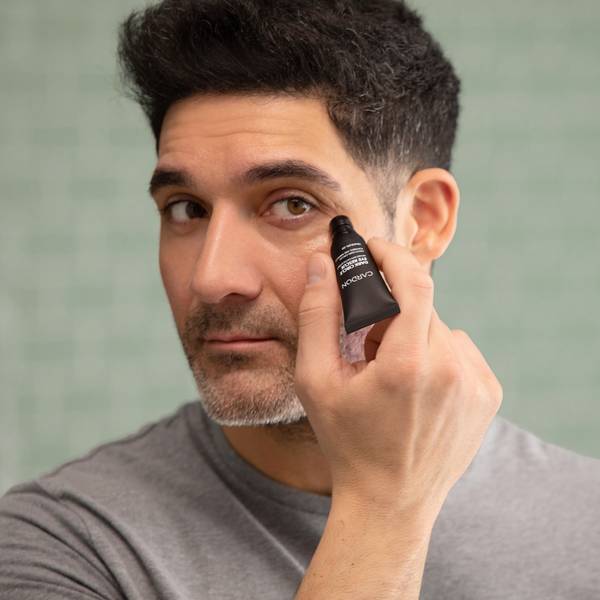
seller
Anti-Aging Skincare Set
good for:
Life comes at you fast. That’s why we developed our Anti-Aging Skincare Set full of just what you need to tackle fine lines, rough texture, and other signs of aging in the skin.
From protecting skin all day long to boosting its ability to repair and rebuild overnight, your past, present, and future selves will thank you.
Includes Steps:
- 01 Dark Circle Eye Rescue
- 02 Purifying Clay Cleanser
- 03 Daily SPF + Moisturizer
- 04 Hydro Boost Gel Moisturizer
Never go empty! Subscribe + Save 15%
Anti-Aging Skincare Set
good for:
Life comes at you fast. That’s why we developed our Anti-Aging Skincare Set full of just what you need to tackle fine lines, rough texture, and other signs of aging in the skin.
From protecting skin all day long to boosting its ability to repair and rebuild overnight, your past, present, and future selves will thank you.
Includes Steps:
- 01 Dark Circle Eye Rescue
- 02 Purifying Clay Cleanser
- 03 Daily SPF + Moisturizer
- 04 Hydro Boost Gel Moisturizer
Never go empty! Subscribe + Save 15%
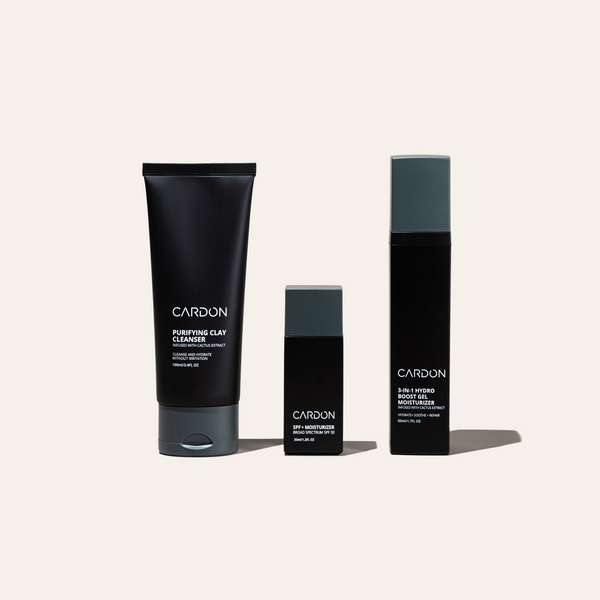
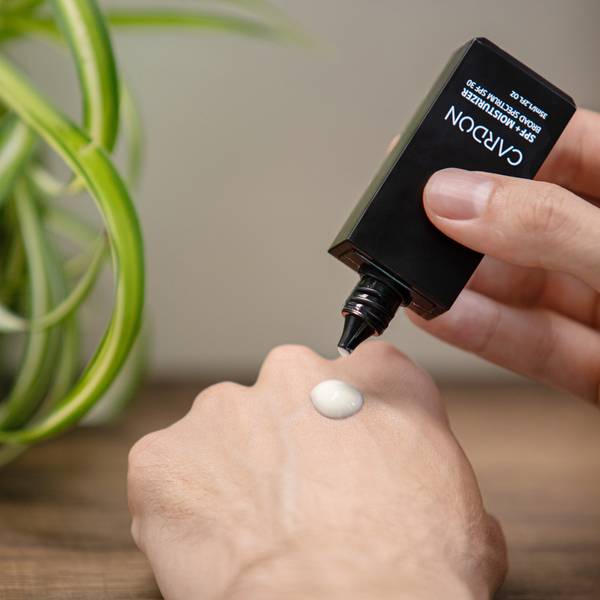
Beginners
Essentials Skincare Set
good for:
Everything you need, nothing you don’t—the Essentials Set is your skincare starter pack. Just cleanse, moisturize, and protect. We took the guesswork out of developing a skincare routine. This is all you need for everyday skin health.
Includes Steps:
- 01 Purifying Clay Cleanser
- 02 Daily SPF + Moisturizer
- 03 Hydro Boost Gel Moisturizer
Never go empty! Subscribe + Save 15%
Essentials Skincare Set
good for:
Everything you need, nothing you don’t—the Essentials Set is your skincare starter pack. Just cleanse, moisturize, and protect. We took the guesswork out of developing a skincare routine. This is all you need for everyday skin health.
Includes Steps:
- 01 Purifying Clay Cleanser
- 02 Daily SPF + Moisturizer
- 03 Hydro Boost Gel Moisturizer
Never go empty! Subscribe + Save 15%
.png?v=1701688836389&options=w_600)
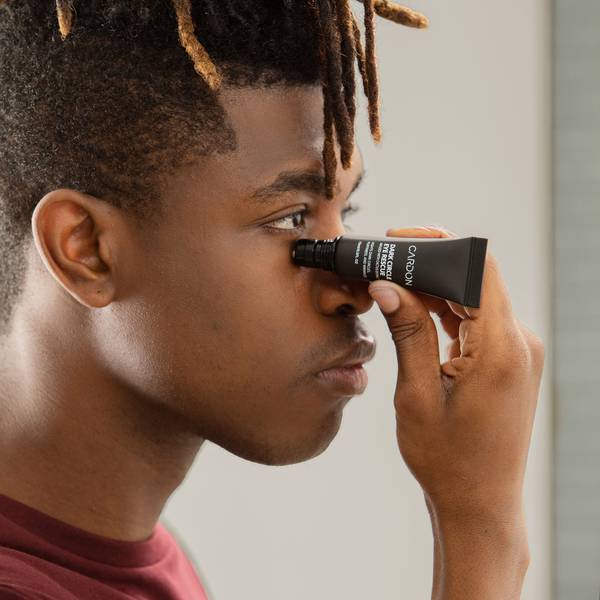
Dark Circles Skincare Set
good for:
All work and no play makes for dull skin.
The Dark Circles Skincare Set is perfect for those looking to brighten and revive dull and tired looking skin. Cleanses debris and grime from the day, depuffs and treats under eye bags, and rehydrates while soothing the skin in your sleep.
Includes Steps:
- 01 Purifying Clay Cleanser
- 02 Dark Circle Eye Rescue
- 03 Hydro Boost Gel Moisturizer
Never go empty! Subscribe + Save 15%
Dark Circles Skincare Set
good for:
All work and no play makes for dull skin.
The Dark Circles Skincare Set is perfect for those looking to brighten and revive dull and tired looking skin. Cleanses debris and grime from the day, depuffs and treats under eye bags, and rehydrates while soothing the skin in your sleep.
Includes Steps:
- 01 Purifying Clay Cleanser
- 02 Dark Circle Eye Rescue
- 03 Hydro Boost Gel Moisturizer
Never go empty! Subscribe + Save 15%
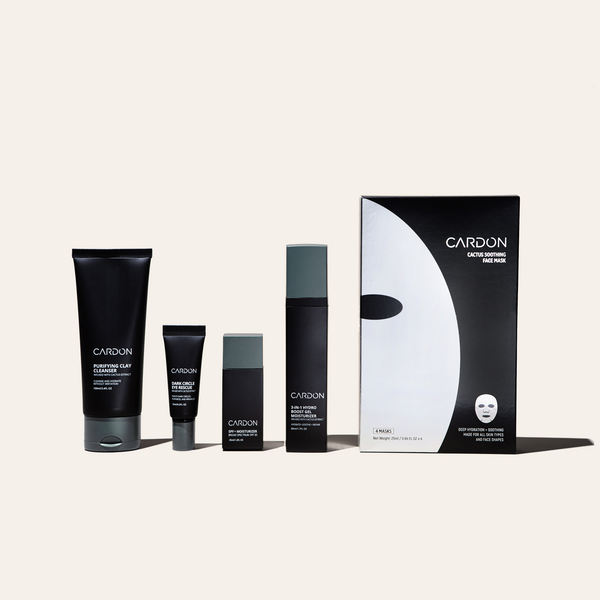
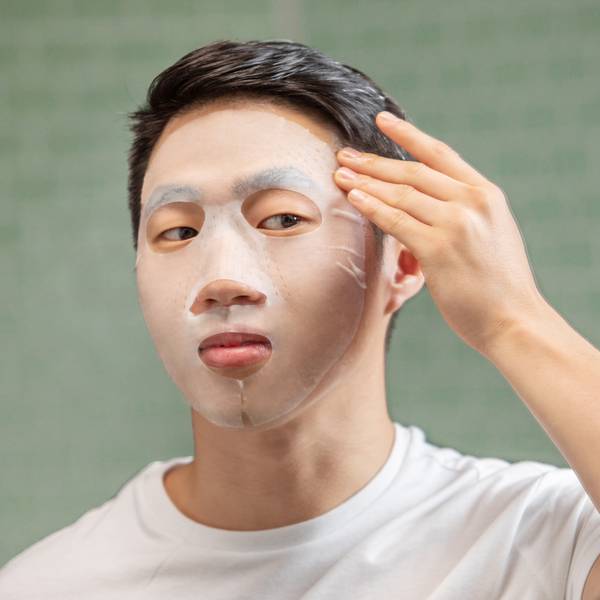
Dry Skin Set
good for:
Skin feeling a bit thirsty? The Dry Skin Set was crafted specifically for those with a dry skin type.
If you deal with flakiness, dull complexion, visible fine lines, red patches, or any combination of the above, this set was made for you. This is all you need to hydrate your skin—and keep it hydrated.
Includes Steps:
- 01
- 02 Dark Circle Eye Rescue
- 03 Daily SPF + Moisturizer
- 04 Hydro Boost Gel Moisturizer
- 05 Cactus Soothing Face Mask
Never go empty! Subscribe + Save 15%
Dry Skin Set
good for:
Skin feeling a bit thirsty? The Dry Skin Set was crafted specifically for those with a dry skin type.
If you deal with flakiness, dull complexion, visible fine lines, red patches, or any combination of the above, this set was made for you. This is all you need to hydrate your skin—and keep it hydrated.
Includes Steps:
- 01
- 02 Dark Circle Eye Rescue
- 03 Daily SPF + Moisturizer
- 04 Hydro Boost Gel Moisturizer
- 05 Cactus Soothing Face Mask
Never go empty! Subscribe + Save 15%
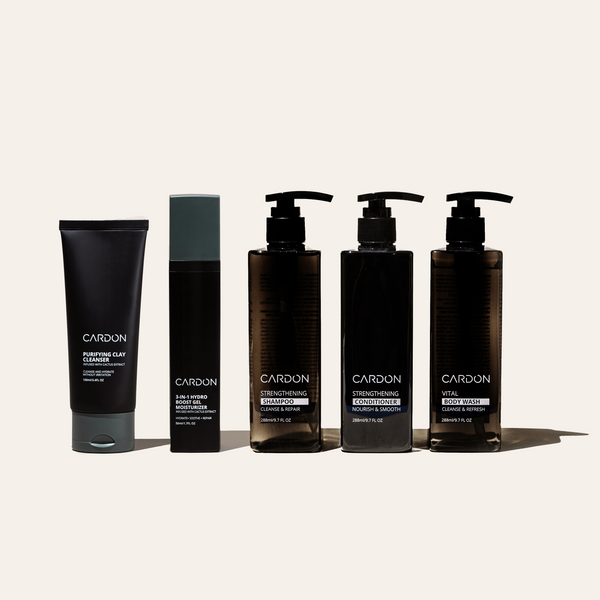
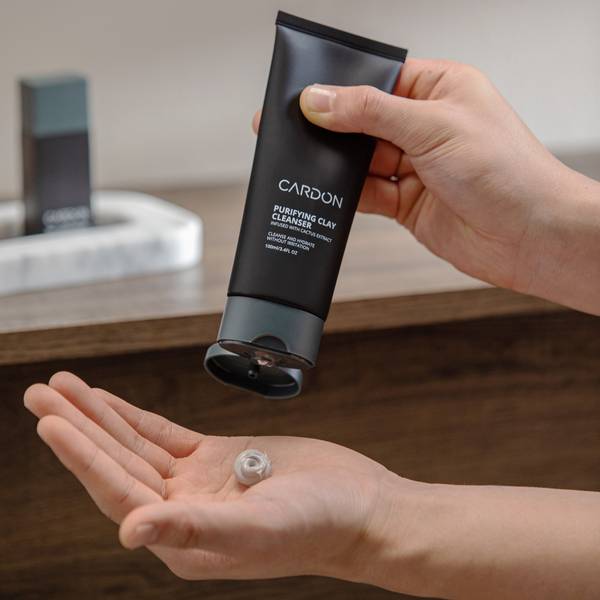
NEW
NEW
+ Hair
+ Body
Head-to-Toe Set
good for:
We've got you covered head to toe, literally. This set comes with a complete skin and hair care routine.
Includes our invigorating shampoo and conditioner to prevent hair loss, refreshing body wash to treat body acne, clay-infused face wash to deeply cleanse the face from debris, and lightweight gel moisturizer to soothe, rehydrate and repair skin while you sleep.
It's about time you treated the rest of your body as good as you treat your face.
Includes Steps:
- 01 Purifying Clay Cleanser
- 02 Hydro Boost Gel Moisturizer
- 03 Hair Thickening + Strengthening Shampoo
- 04 Hair Thickening + Strengthening Conditioner
- 05 Vital Body Wash
Never go empty! Subscribe + Save 15%
Head-to-Toe Set
good for:
We've got you covered head to toe, literally. This set comes with a complete skin and hair care routine.
Includes our invigorating shampoo and conditioner to prevent hair loss, refreshing body wash to treat body acne, clay-infused face wash to deeply cleanse the face from debris, and lightweight gel moisturizer to soothe, rehydrate and repair skin while you sleep.
It's about time you treated the rest of your body as good as you treat your face.
Includes Steps:
- 01 Purifying Clay Cleanser
- 02 Hydro Boost Gel Moisturizer
- 03 Hair Thickening + Strengthening Shampoo
- 04 Hair Thickening + Strengthening Conditioner
- 05 Vital Body Wash
Never go empty! Subscribe + Save 15%
Cardon Products Are
Easy to Use
We never create two products when we can achieve the same results with one. Cardon products are designed to be easy to use every day.
Backed By Korean Innovation
Korean R&D is two decades ahead of the rest of the world. Cardon products use the highest quality, most effective ingredients out there.
Non-Toxic
Finally, an ingredient label you can feel good about. Every ingredient in Cardon products is good for your skin, and easy on the mind.

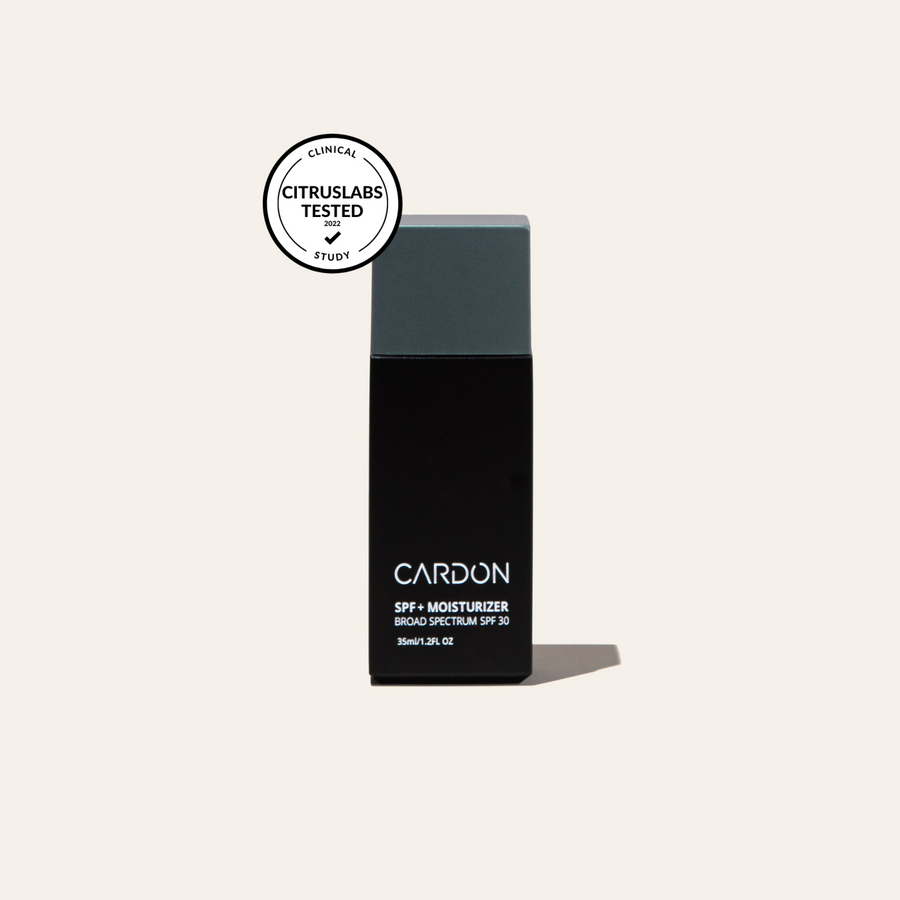
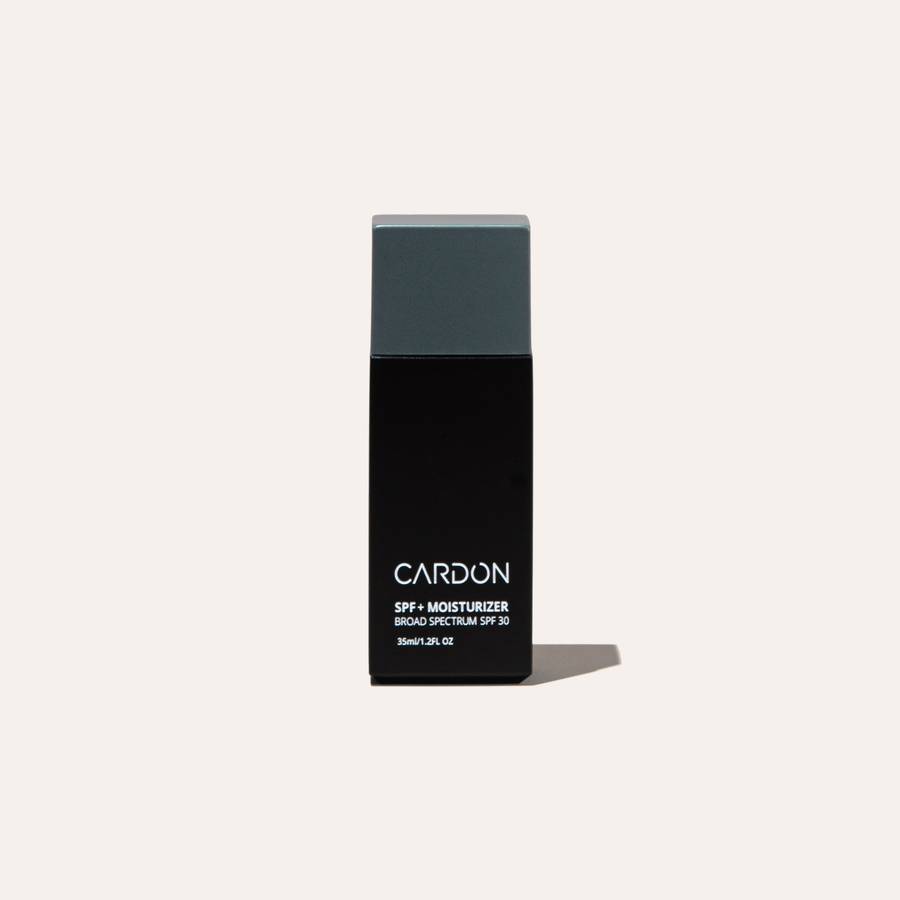
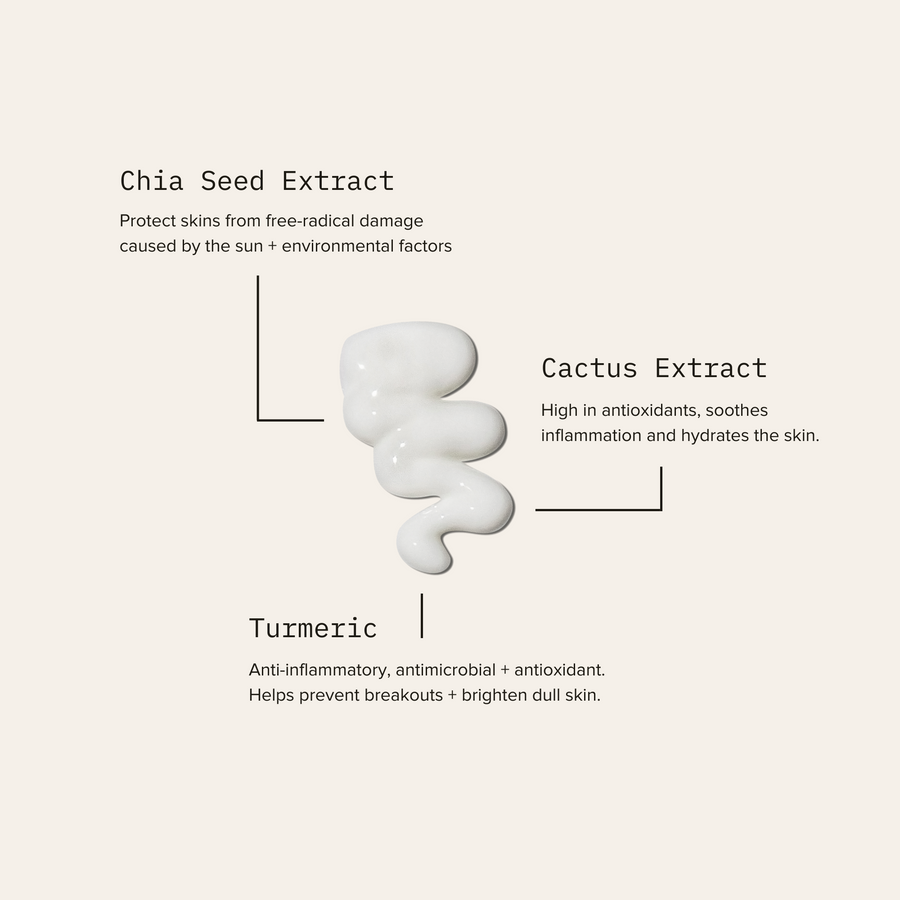
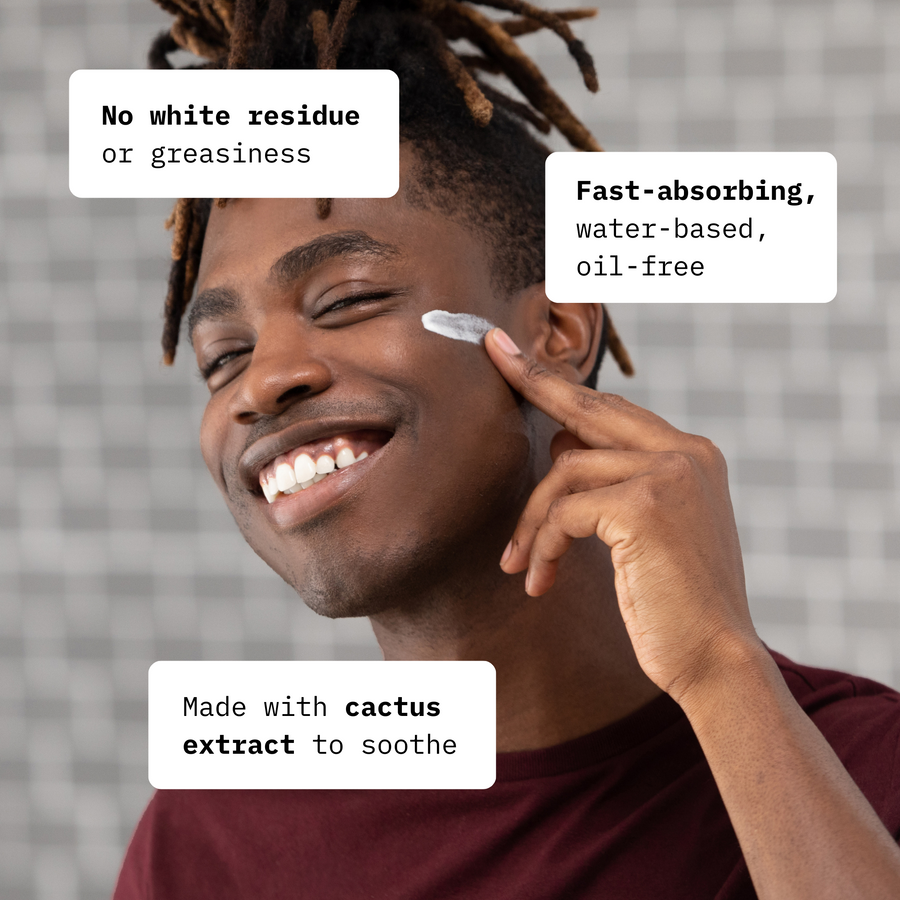
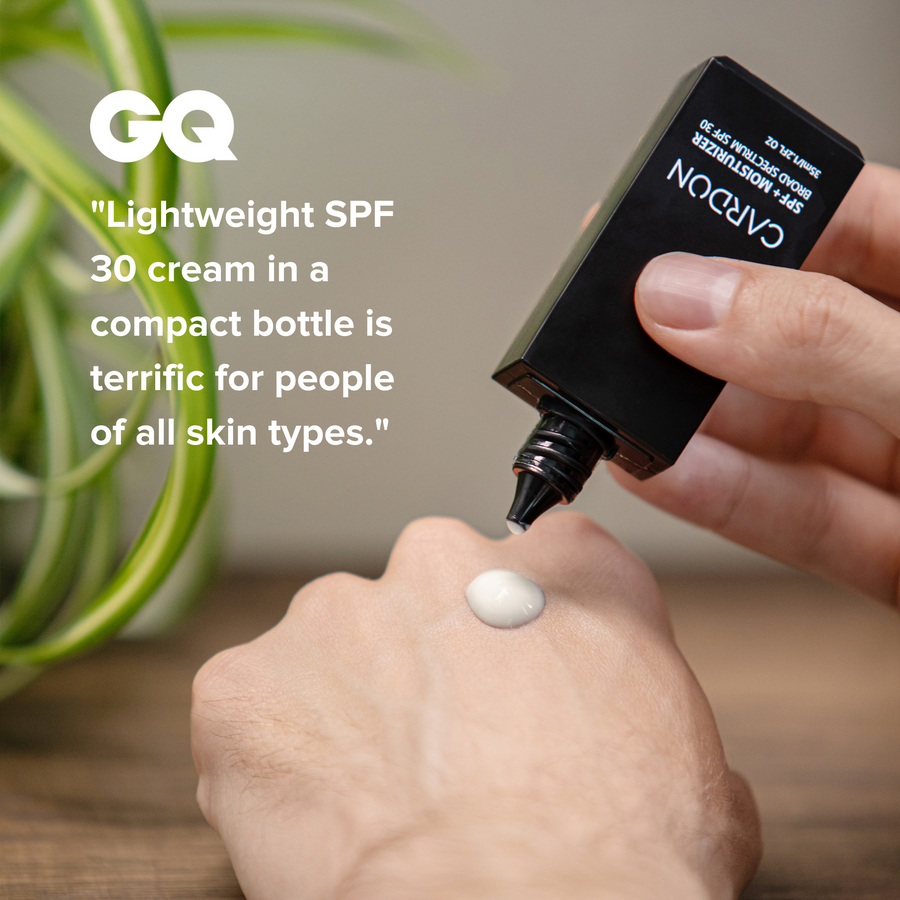
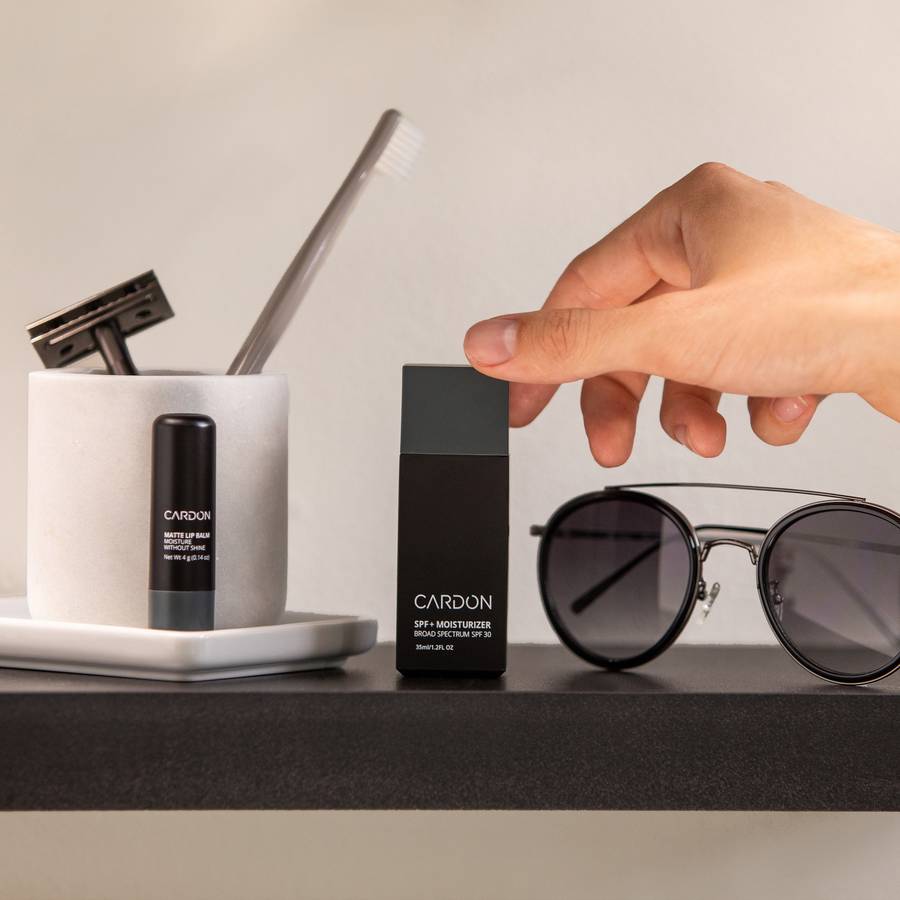
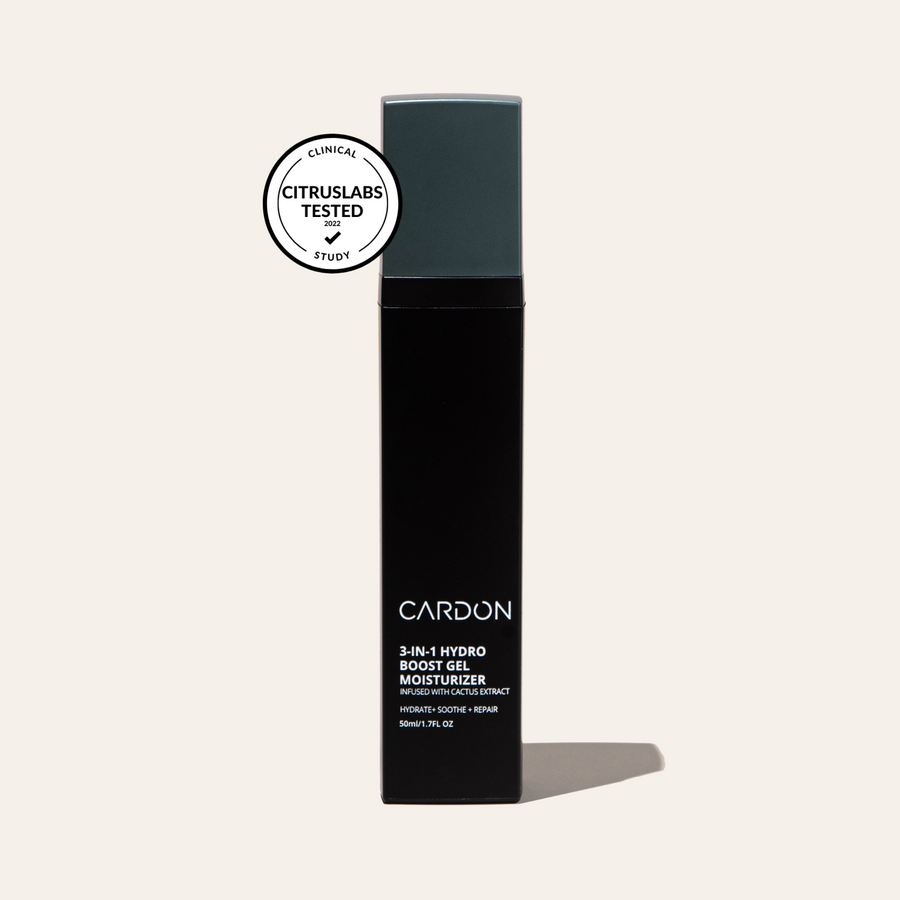
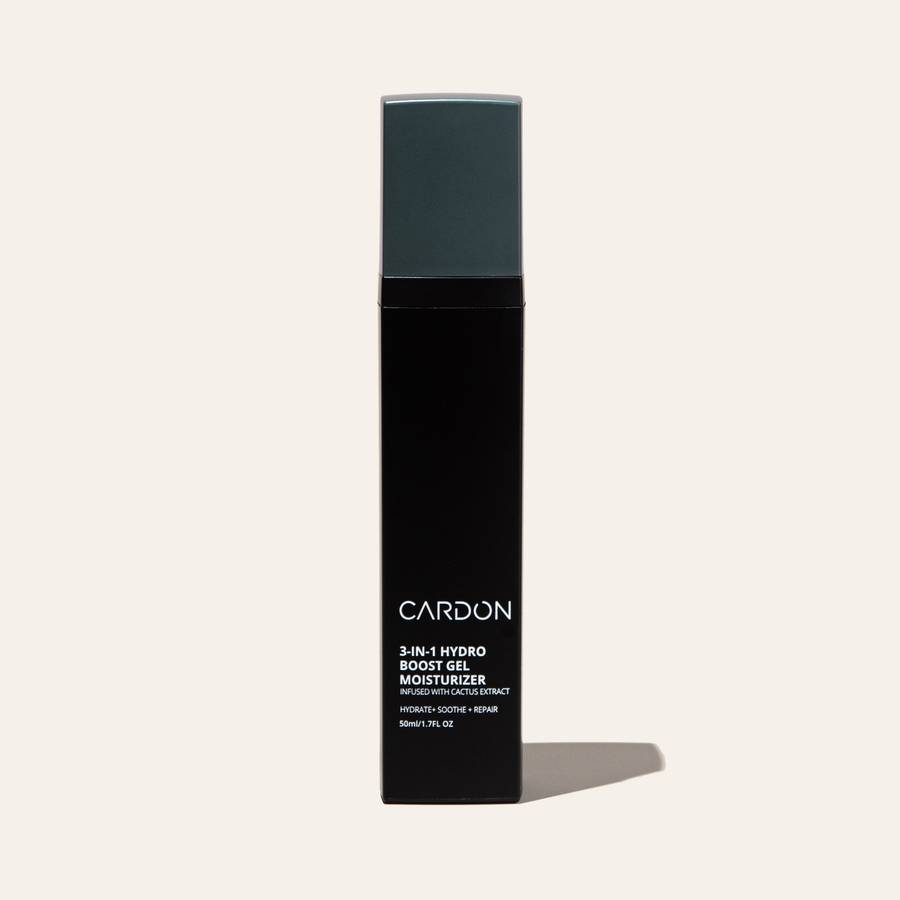
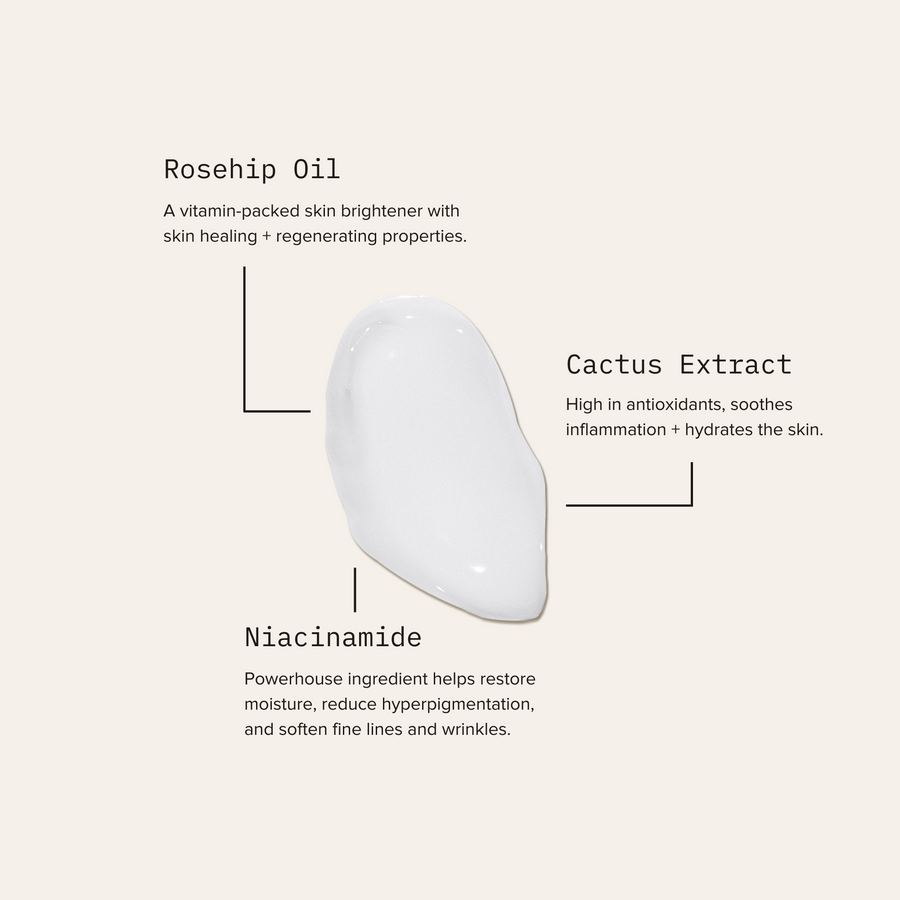

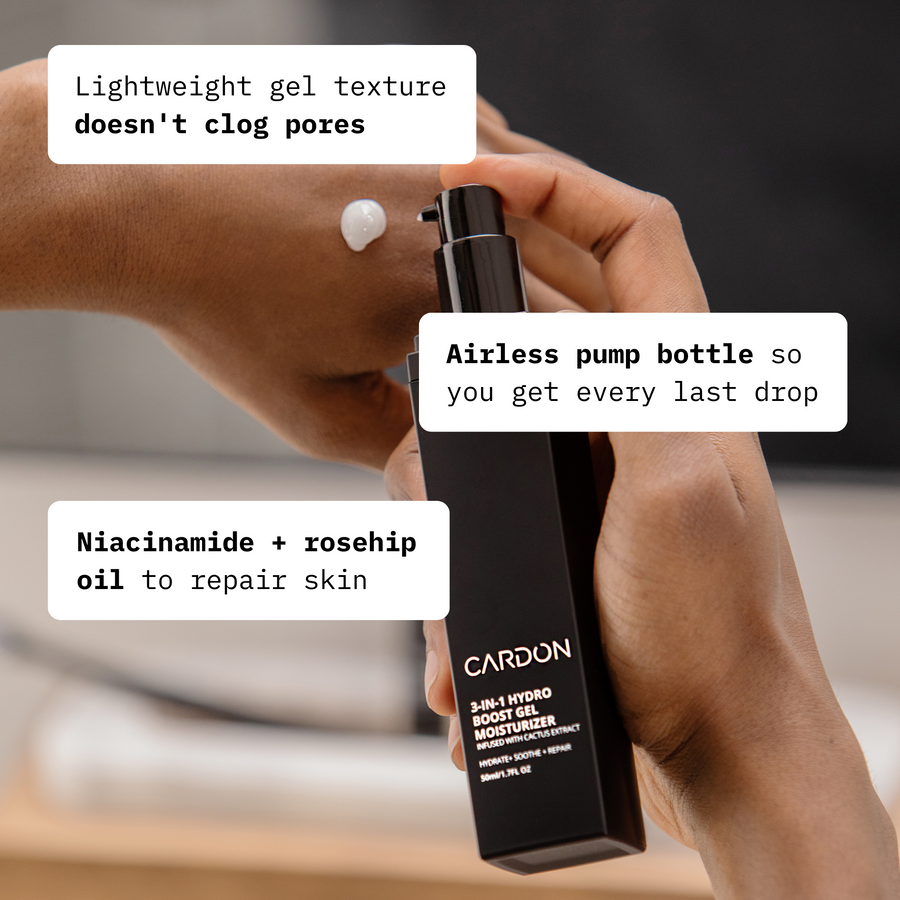
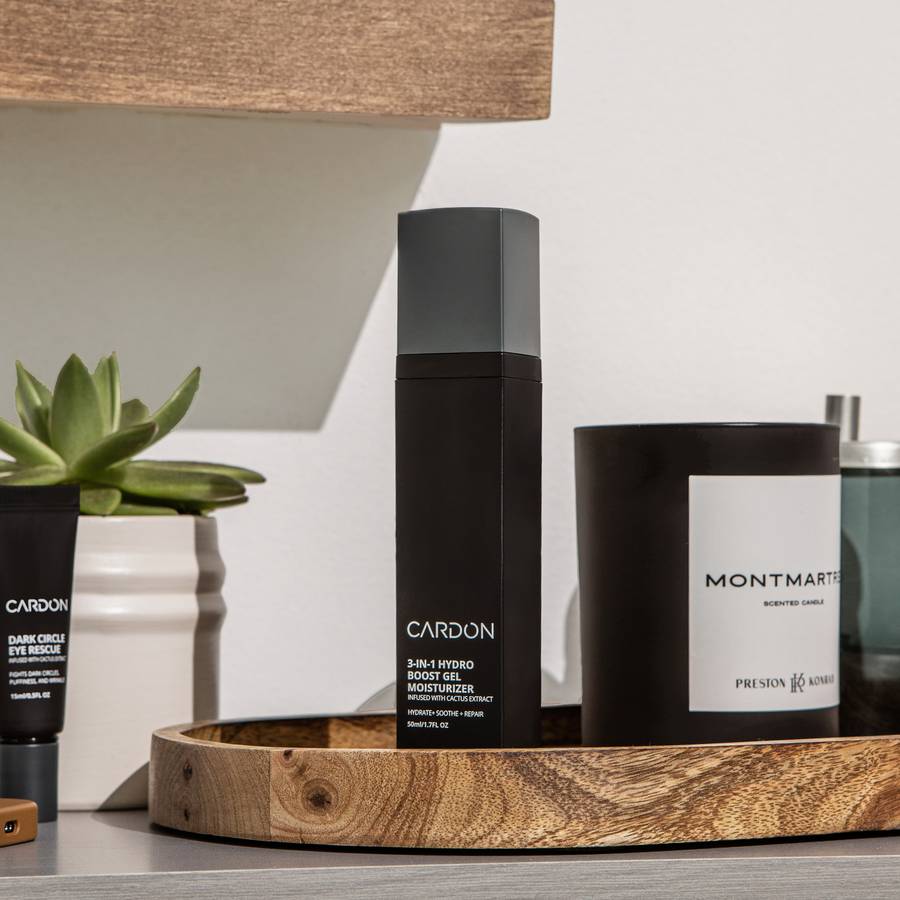
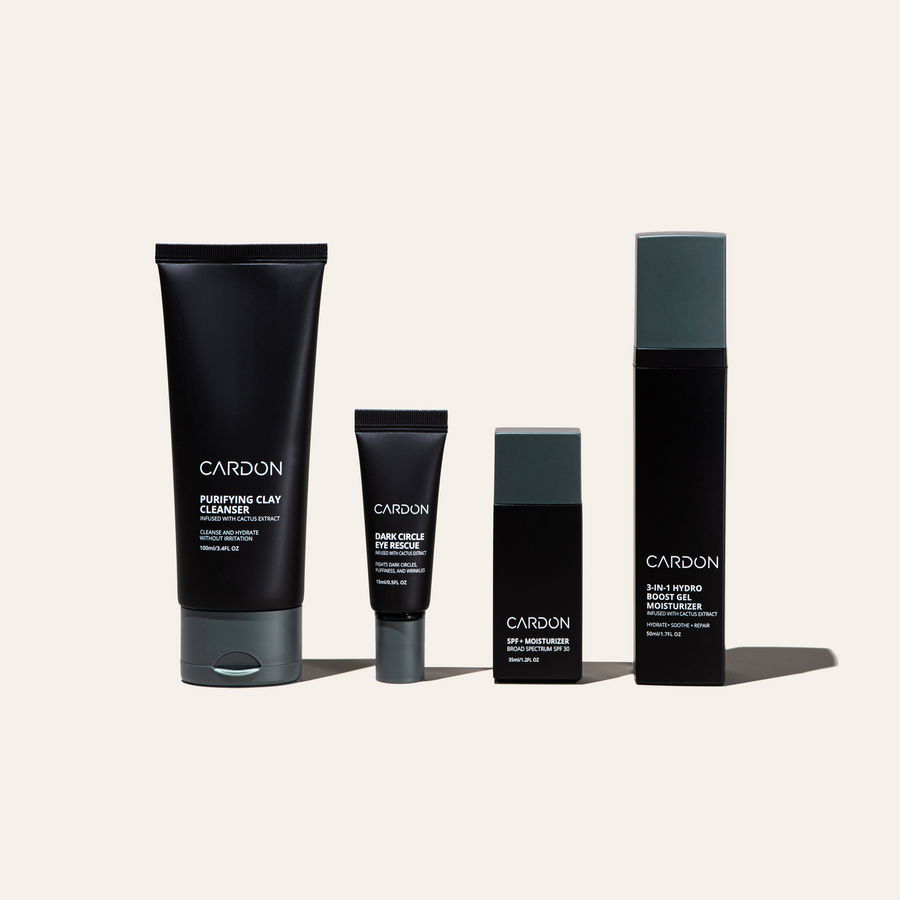
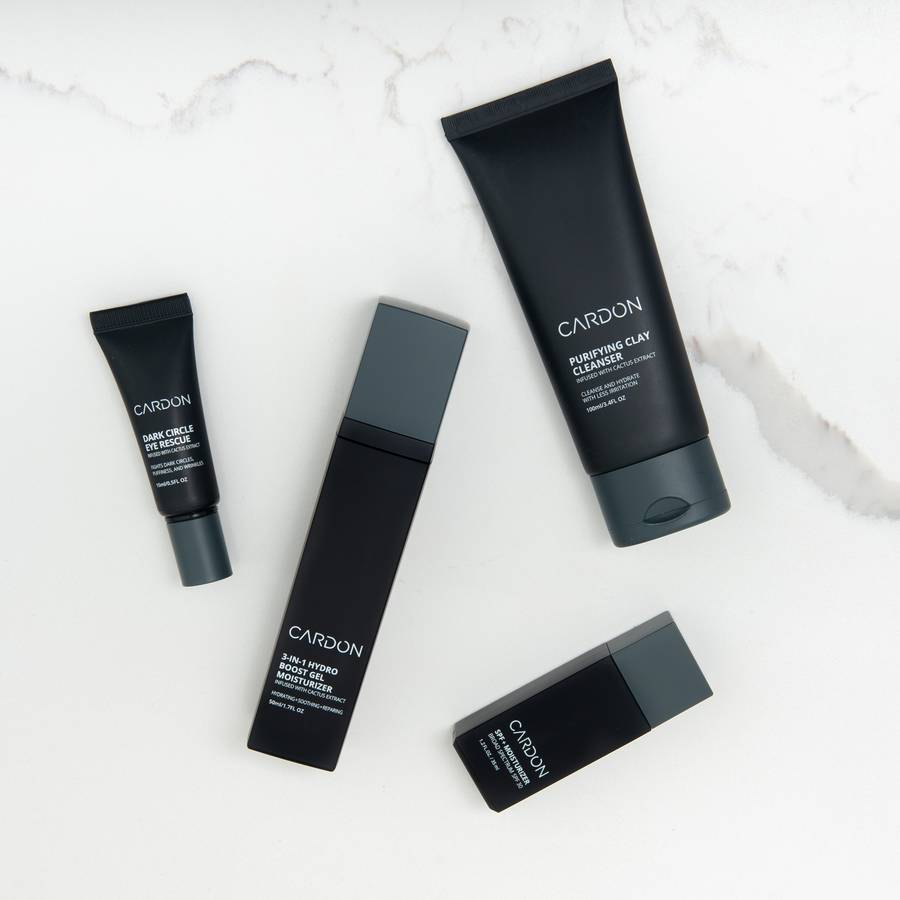
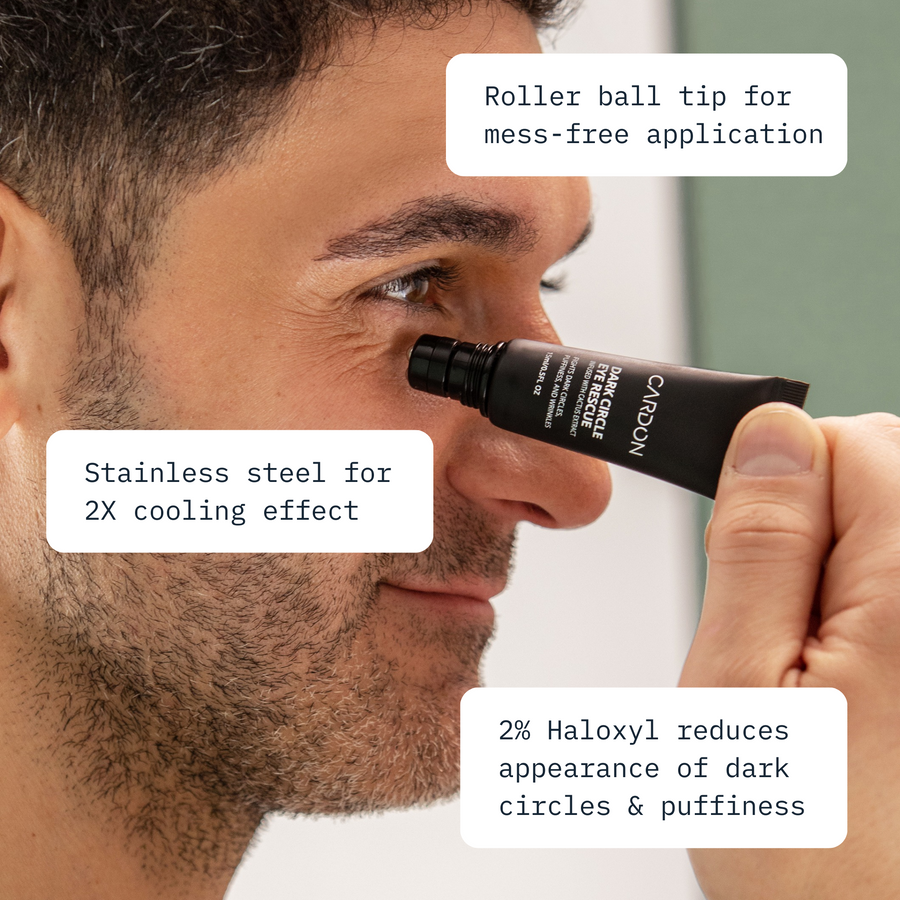
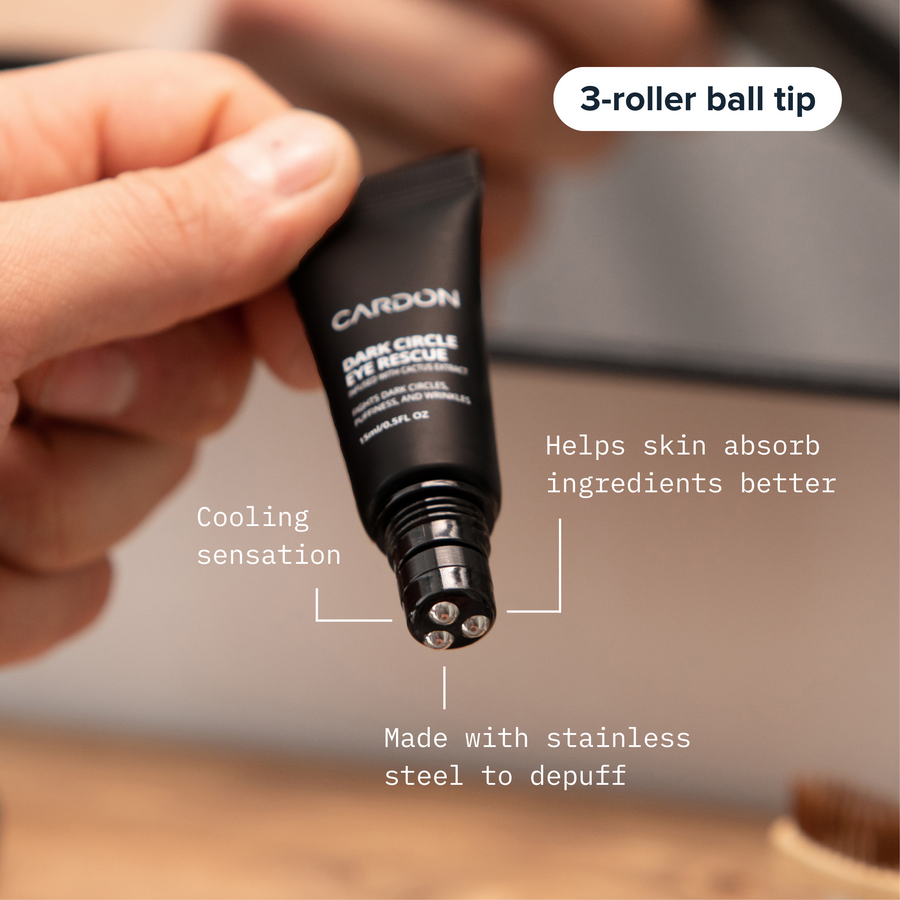
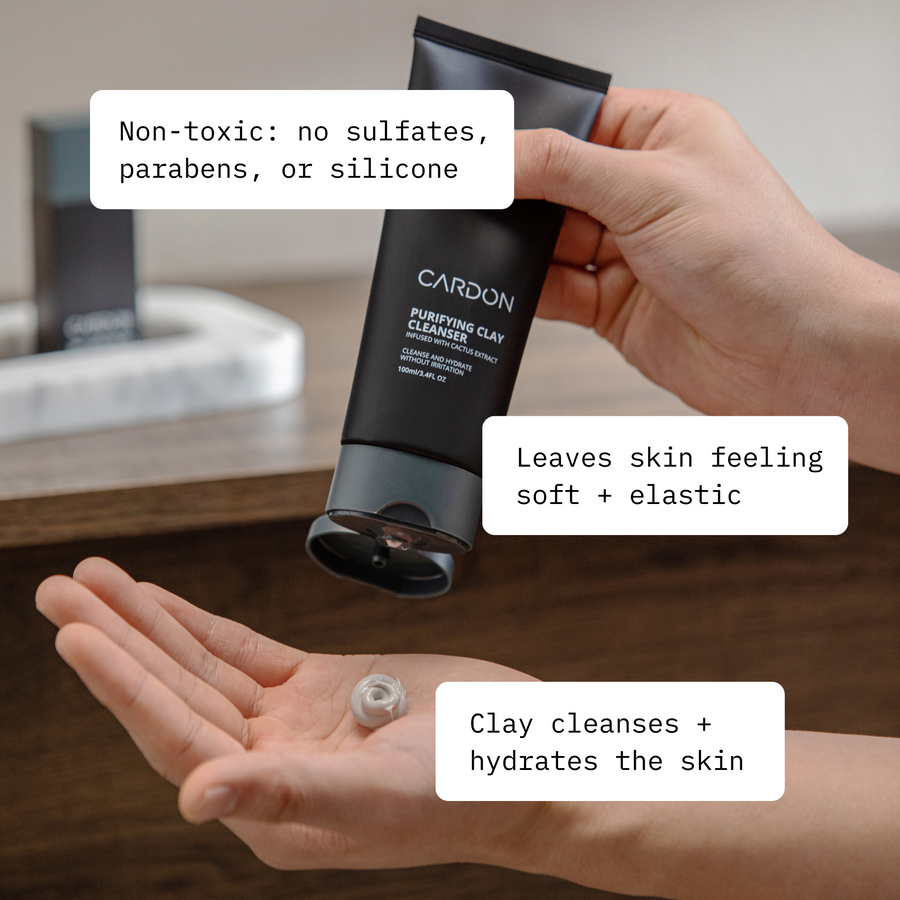
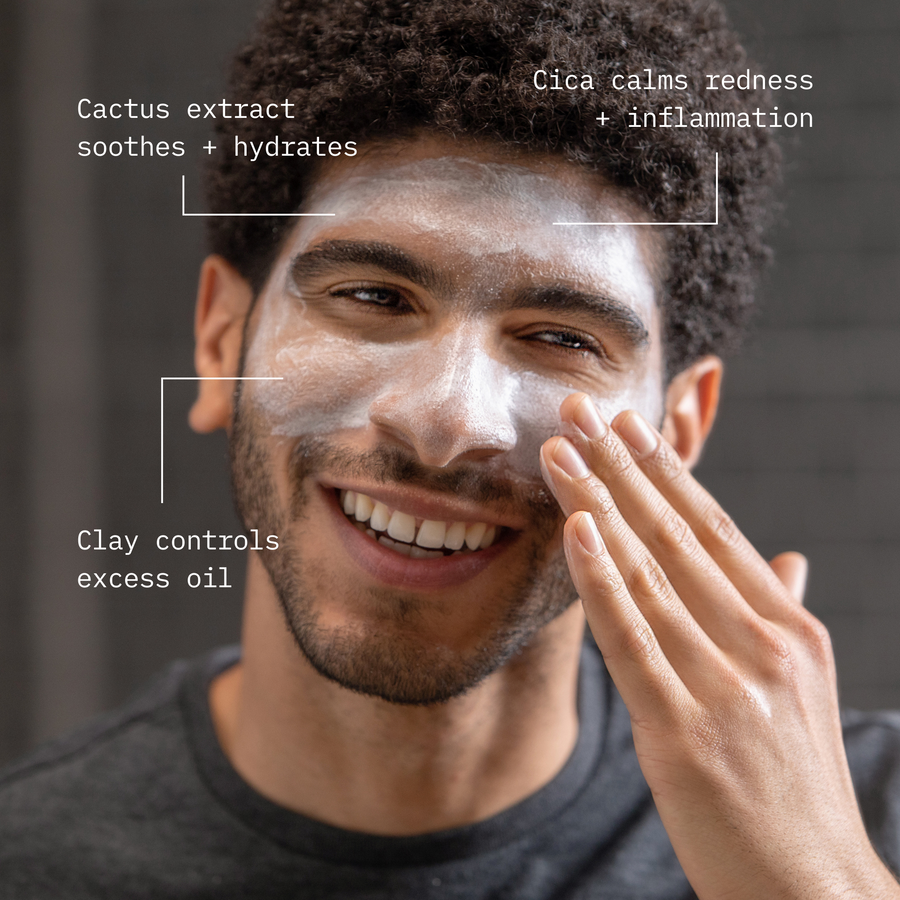
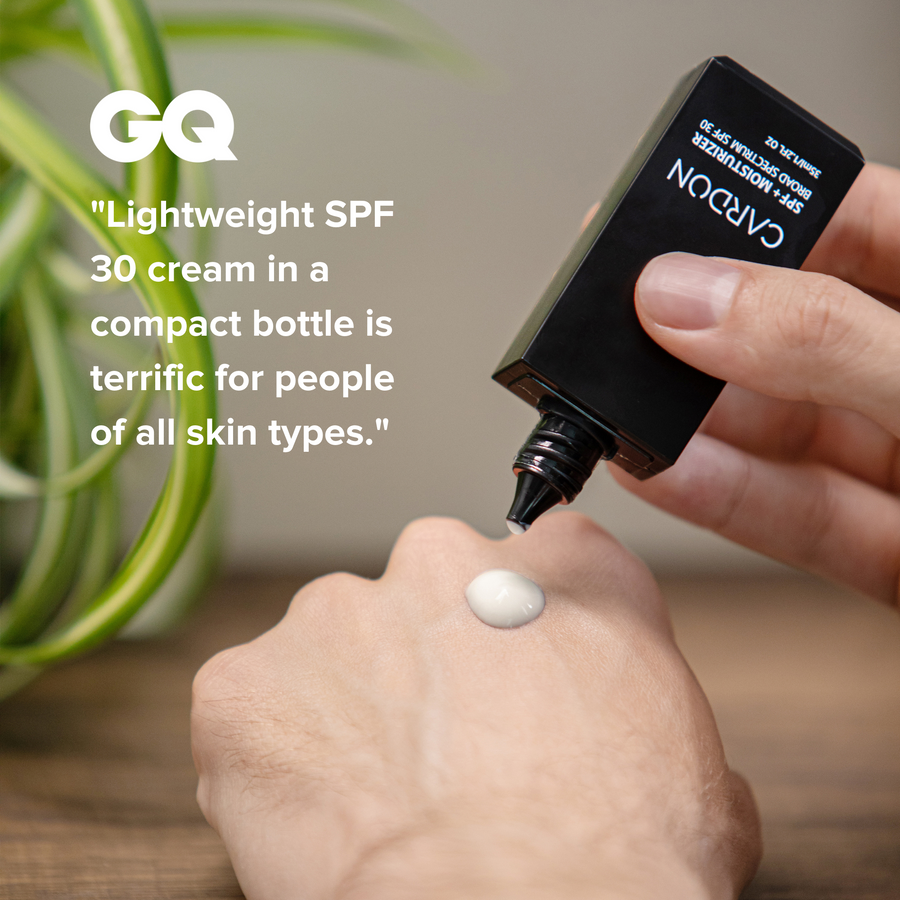
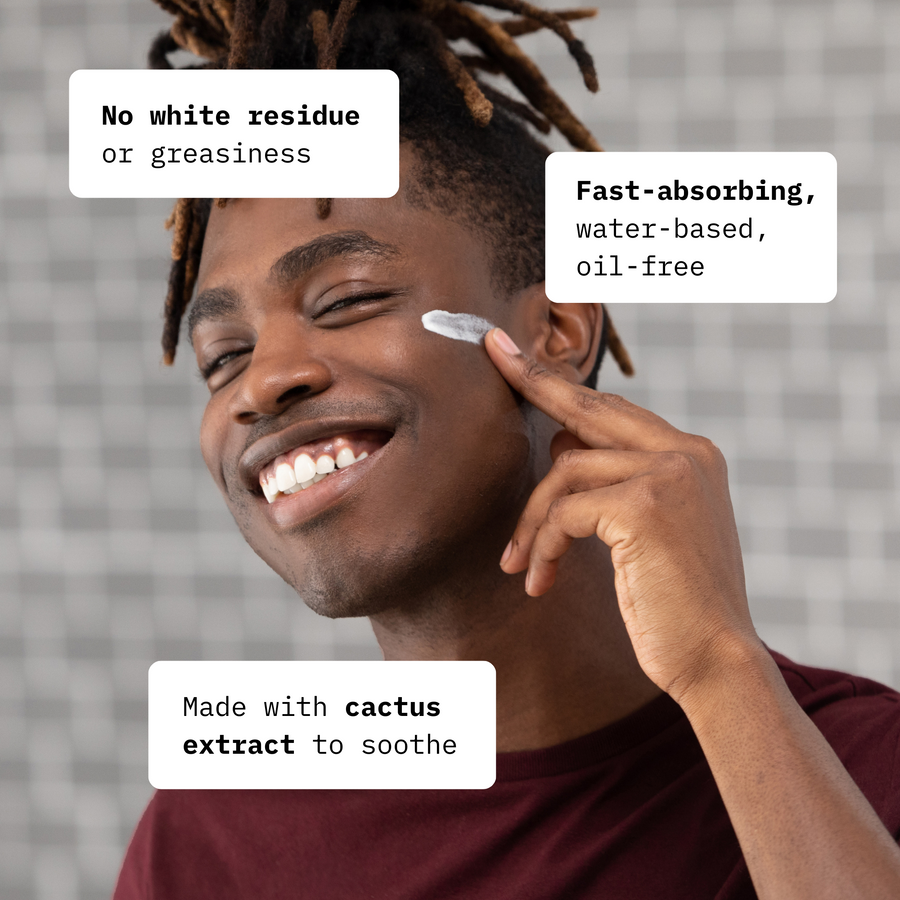
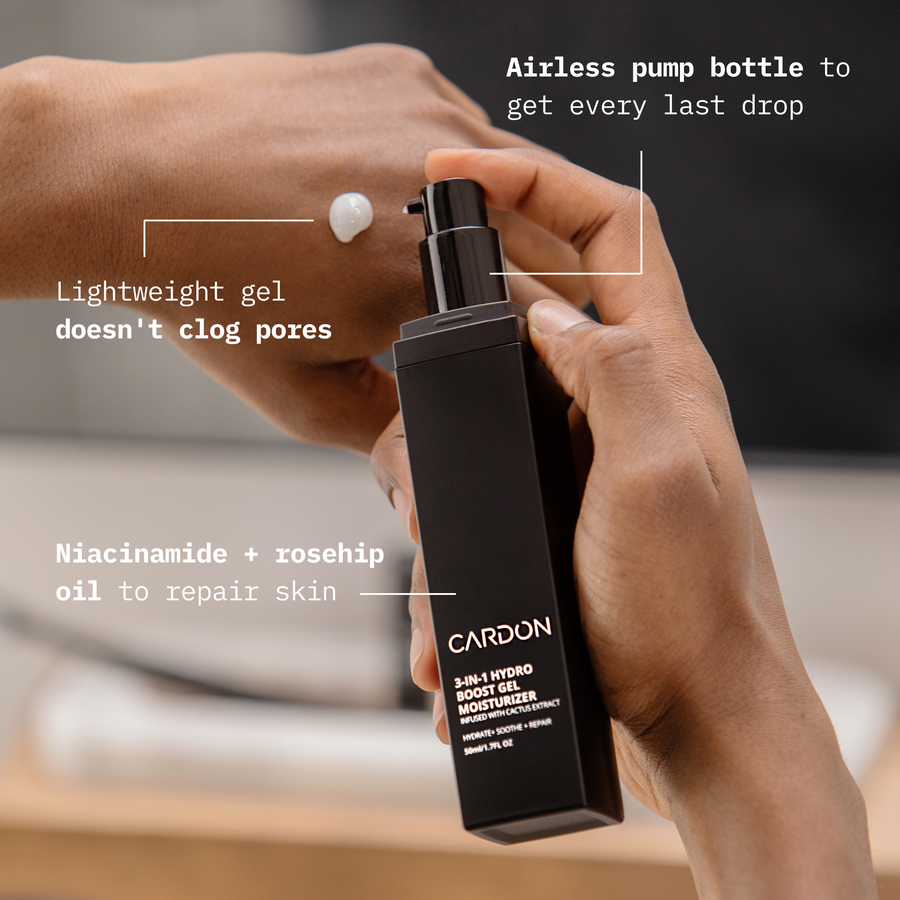
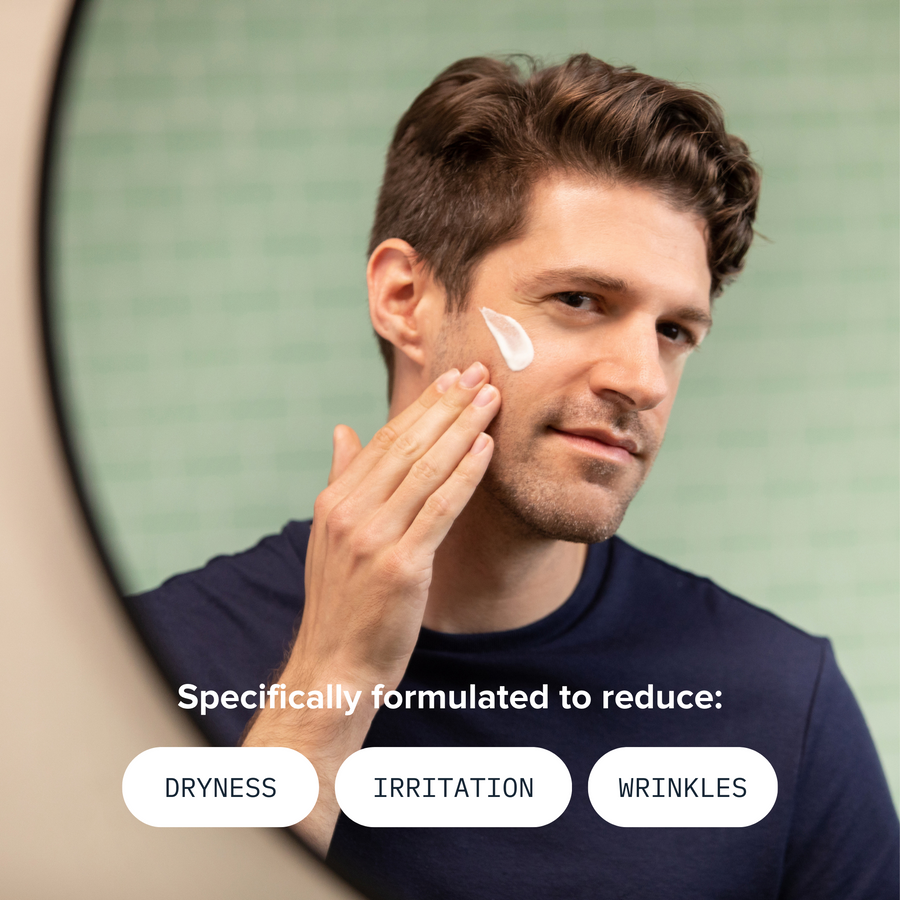
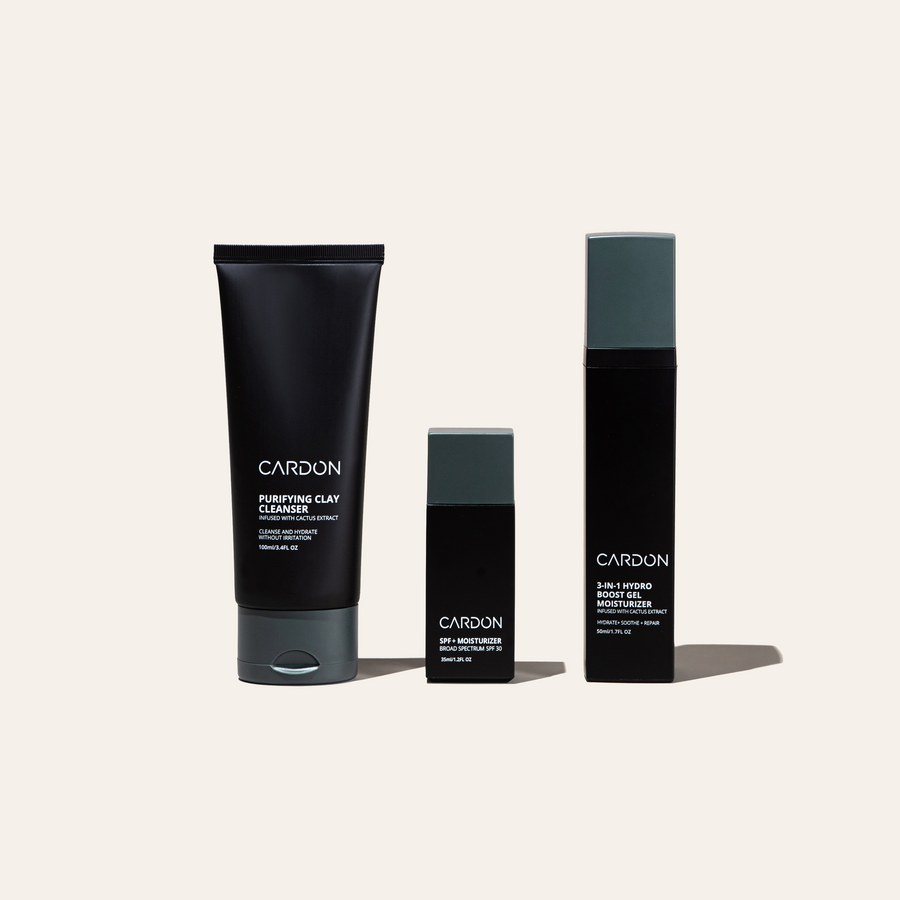
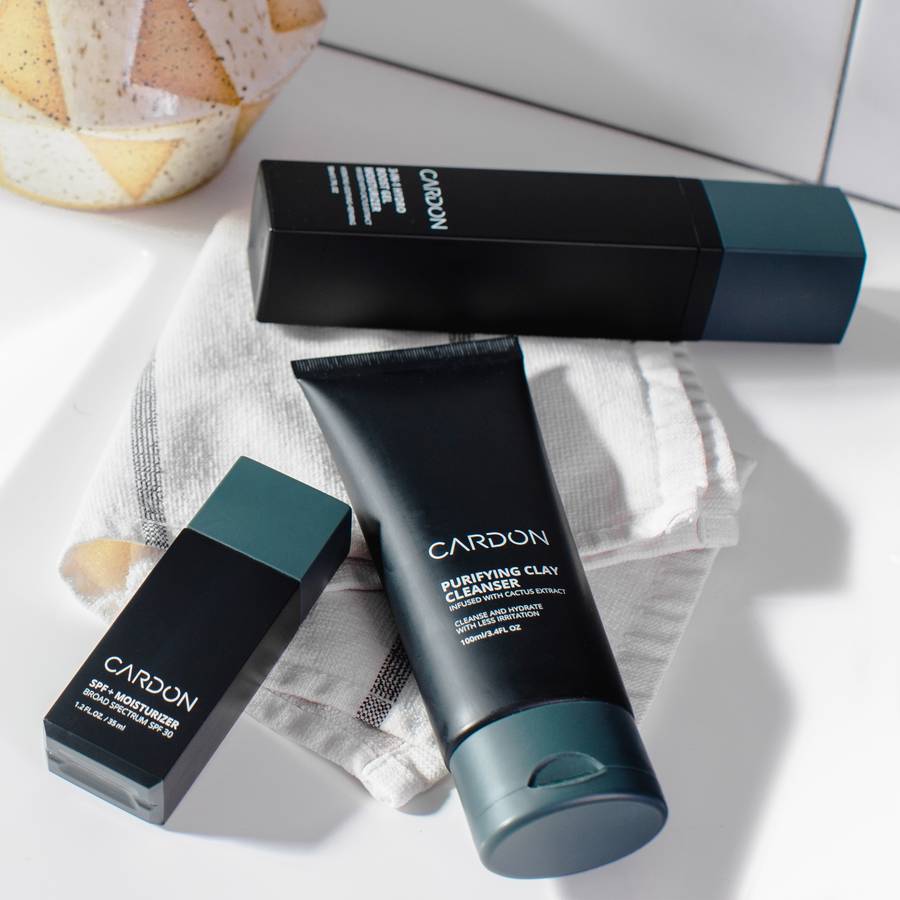
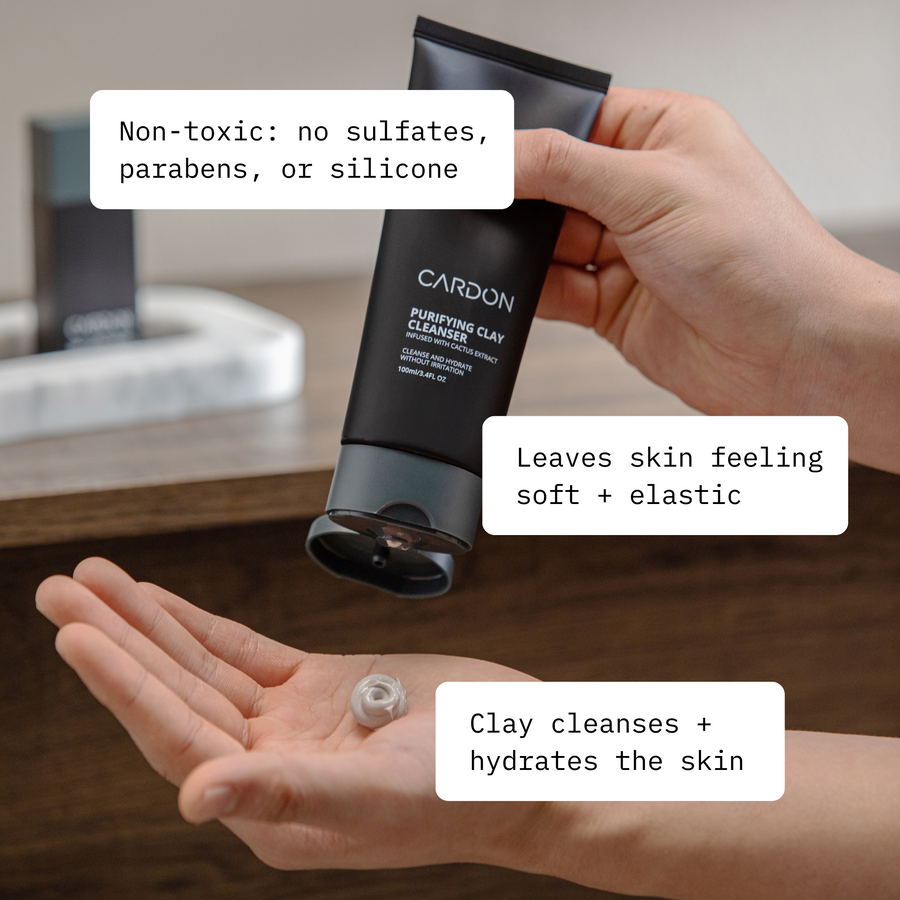
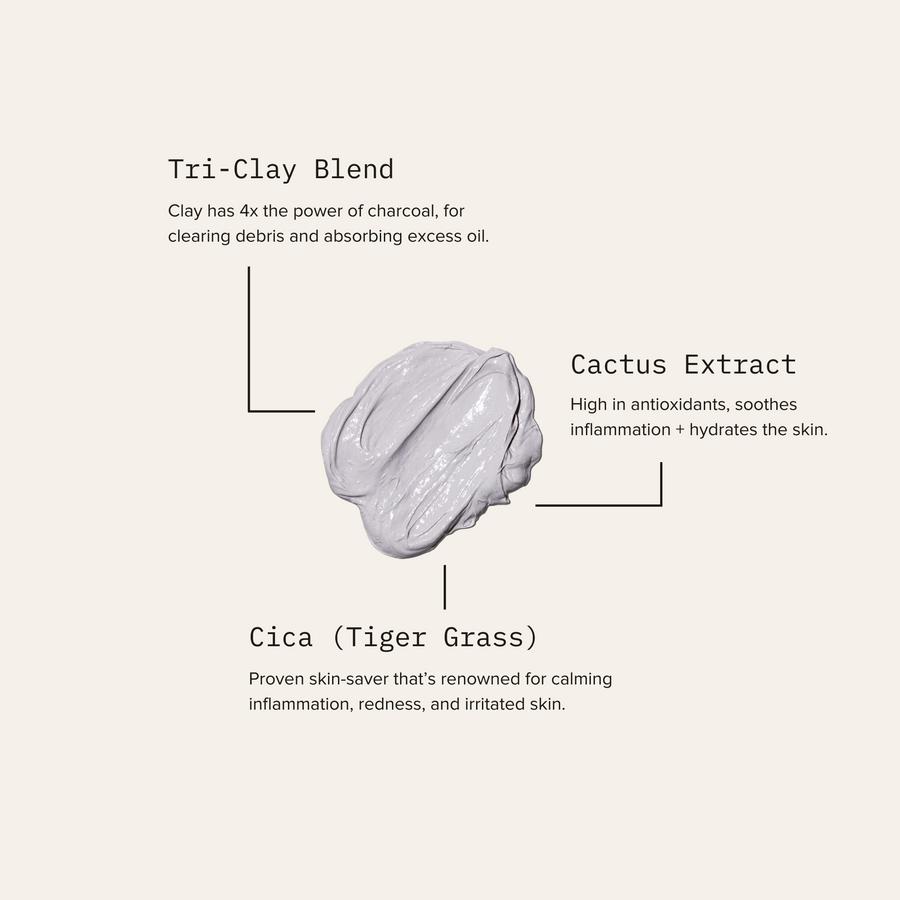
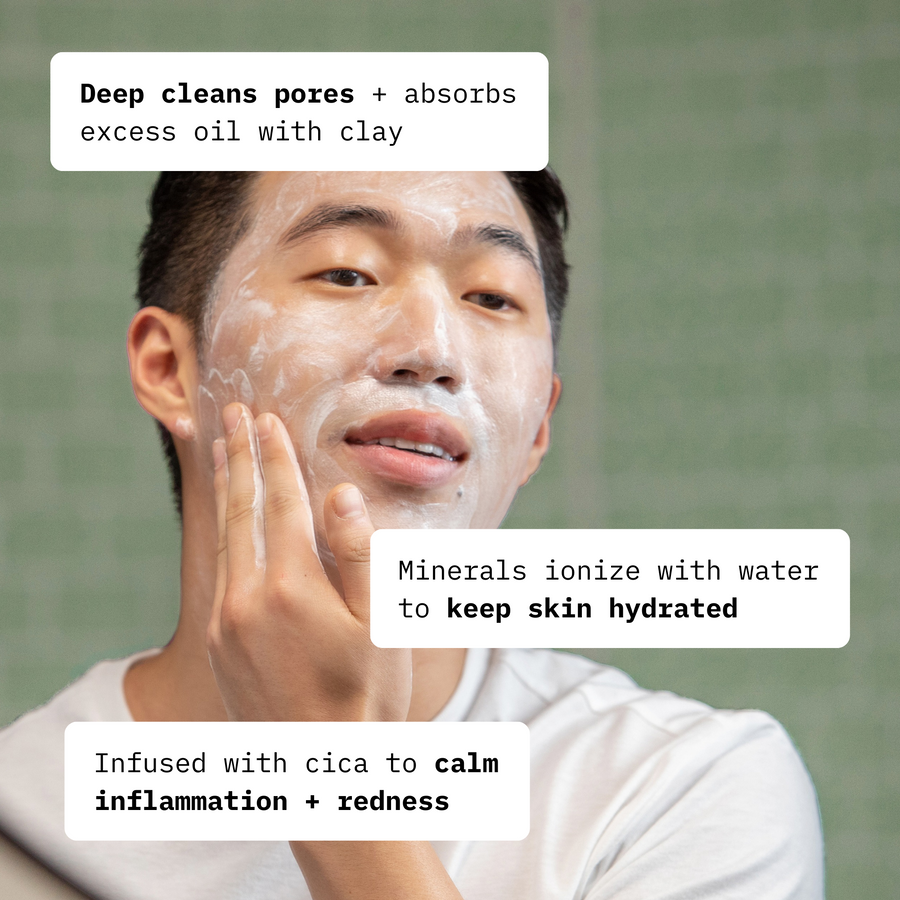

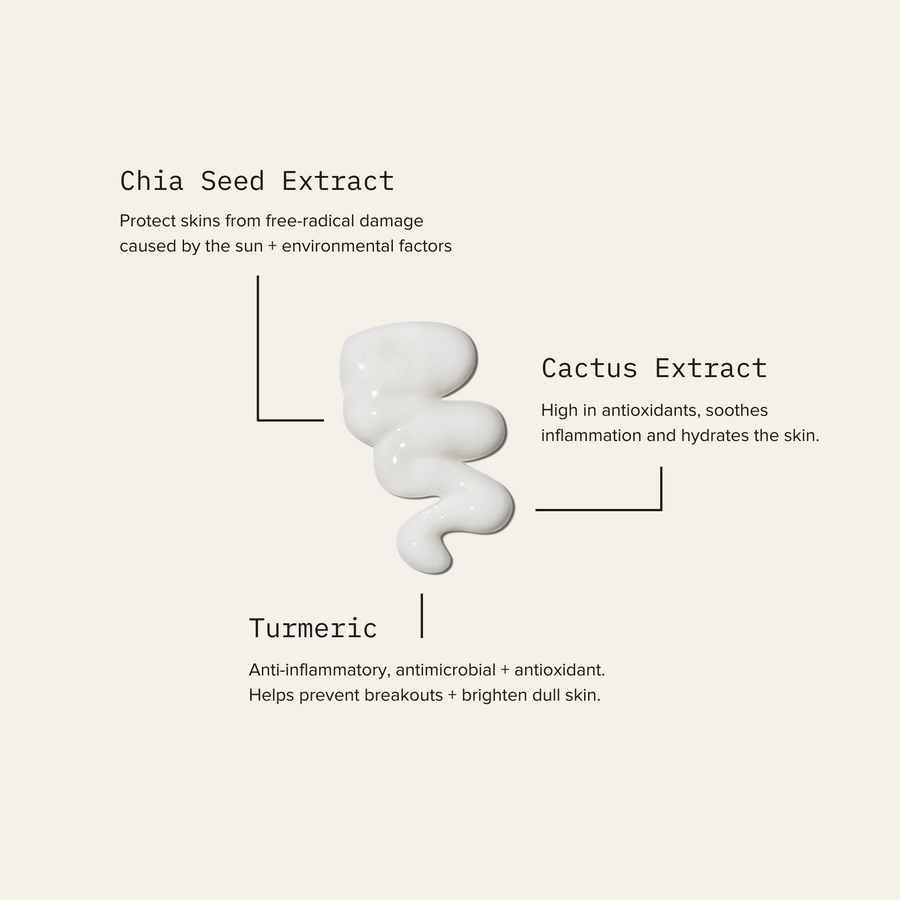
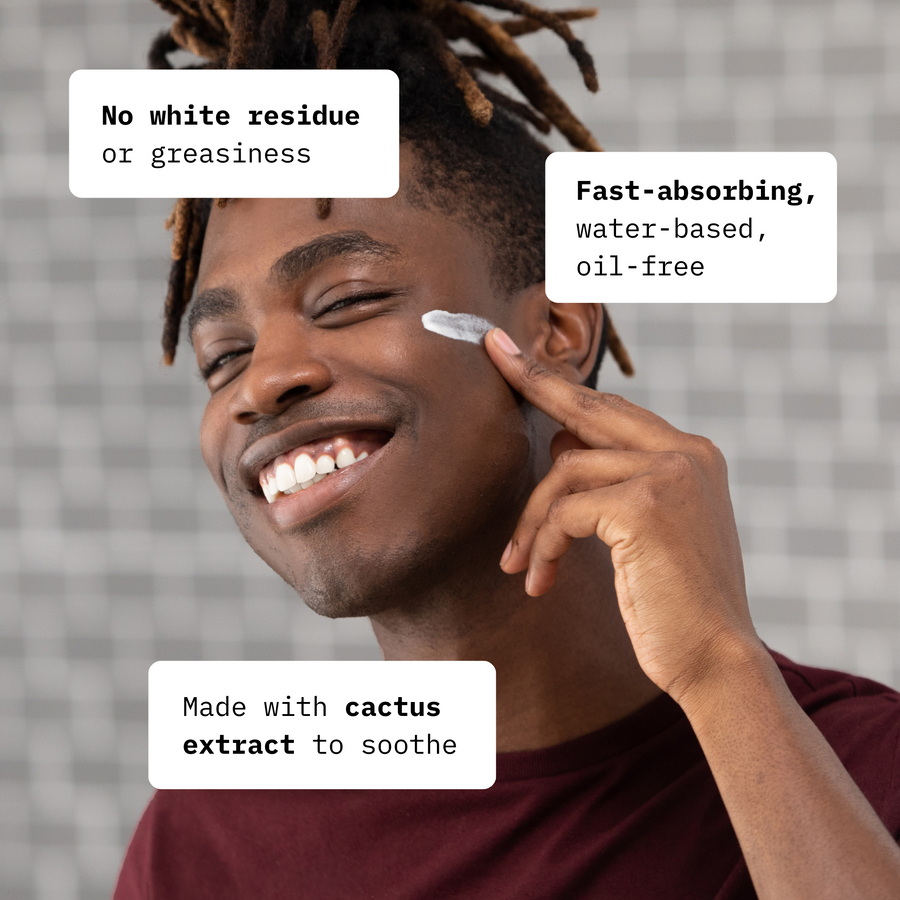
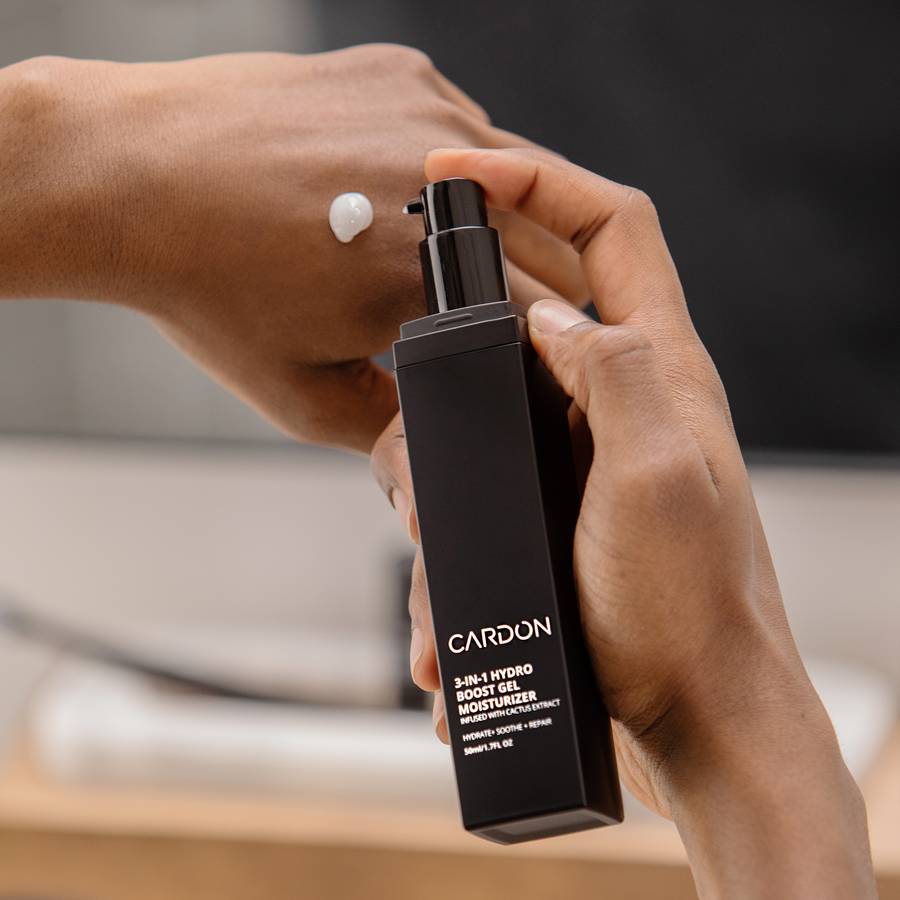
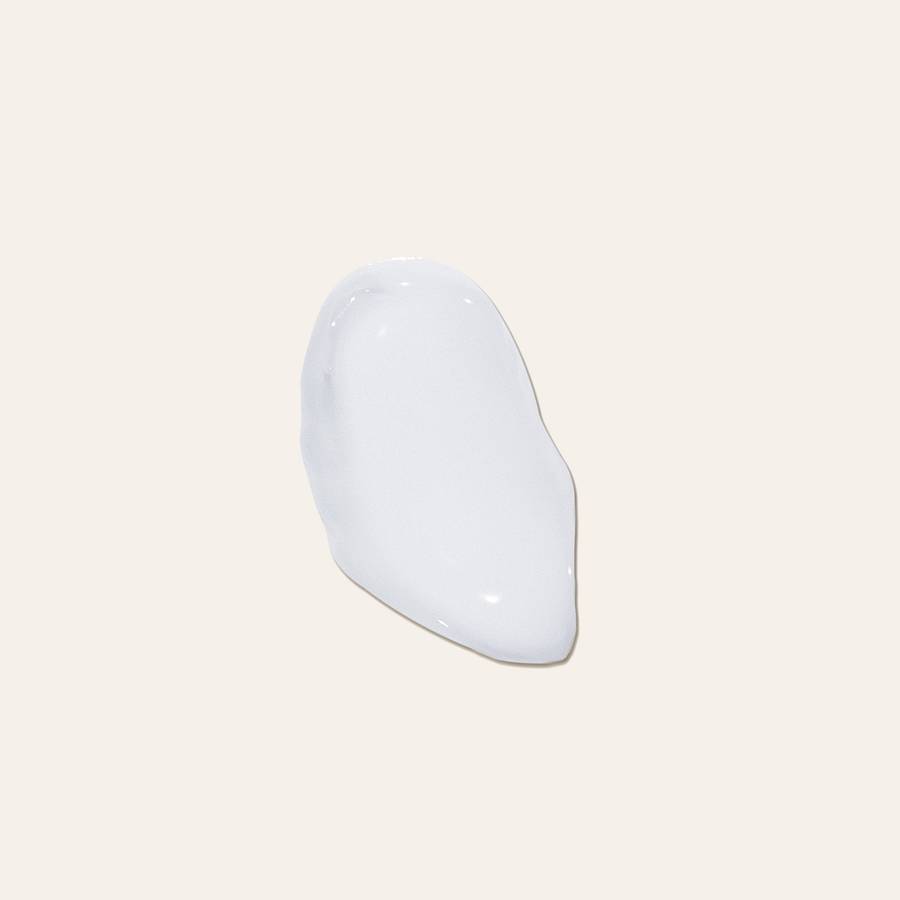
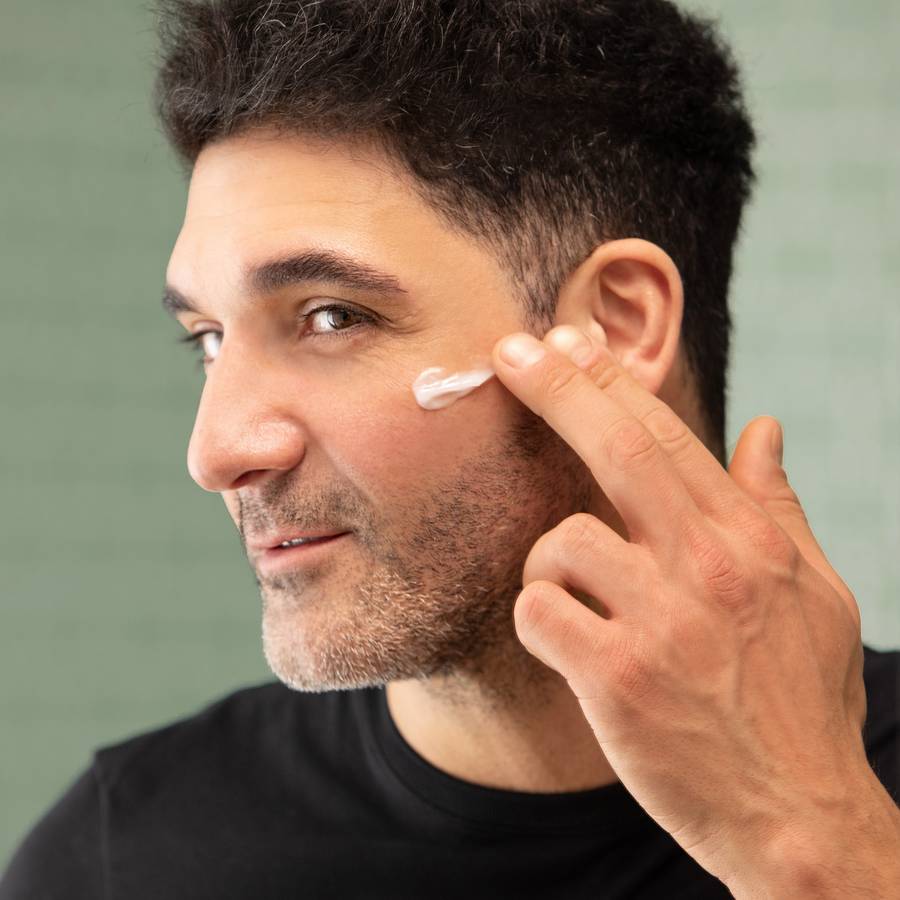
.png?v=1701688884267&options=w_900)
